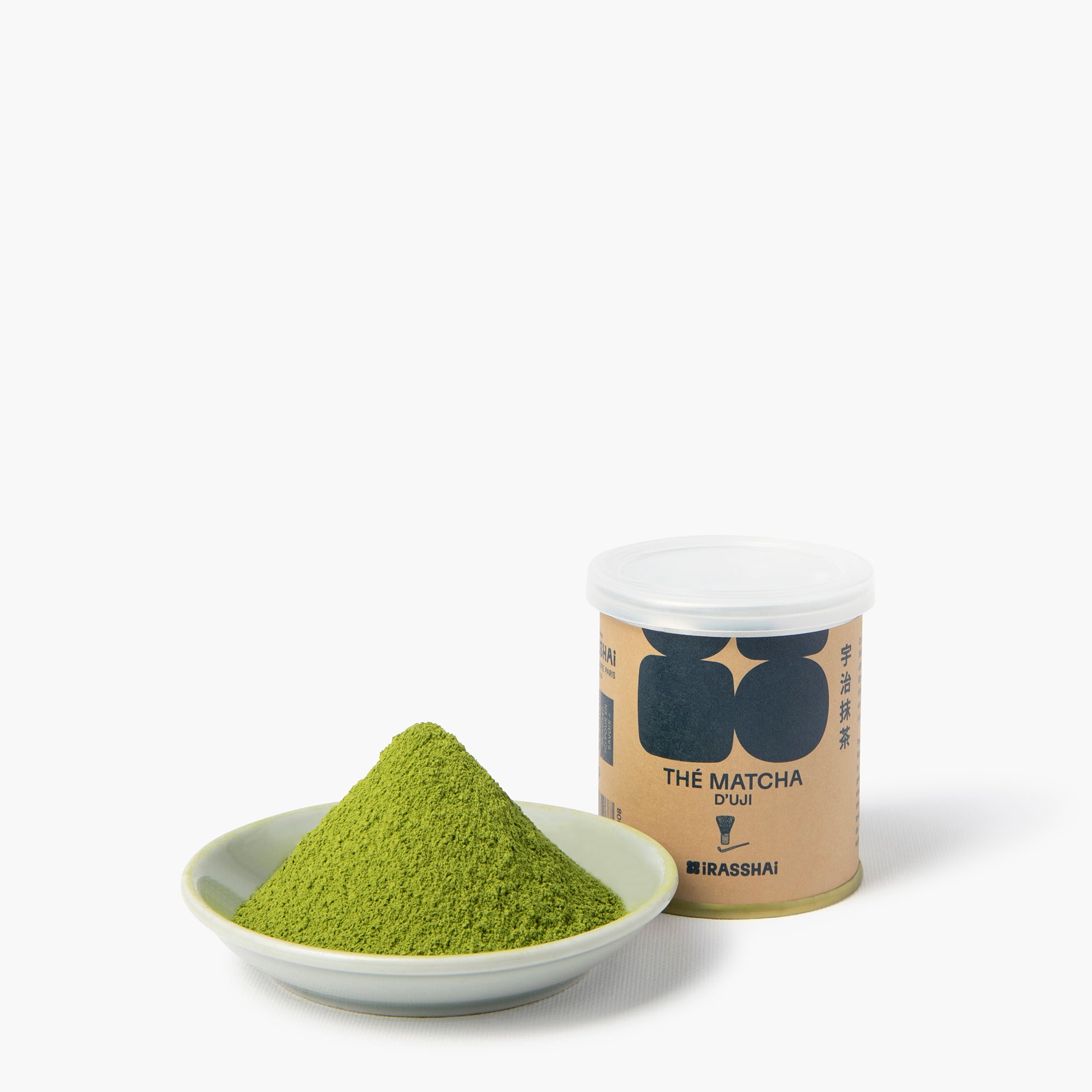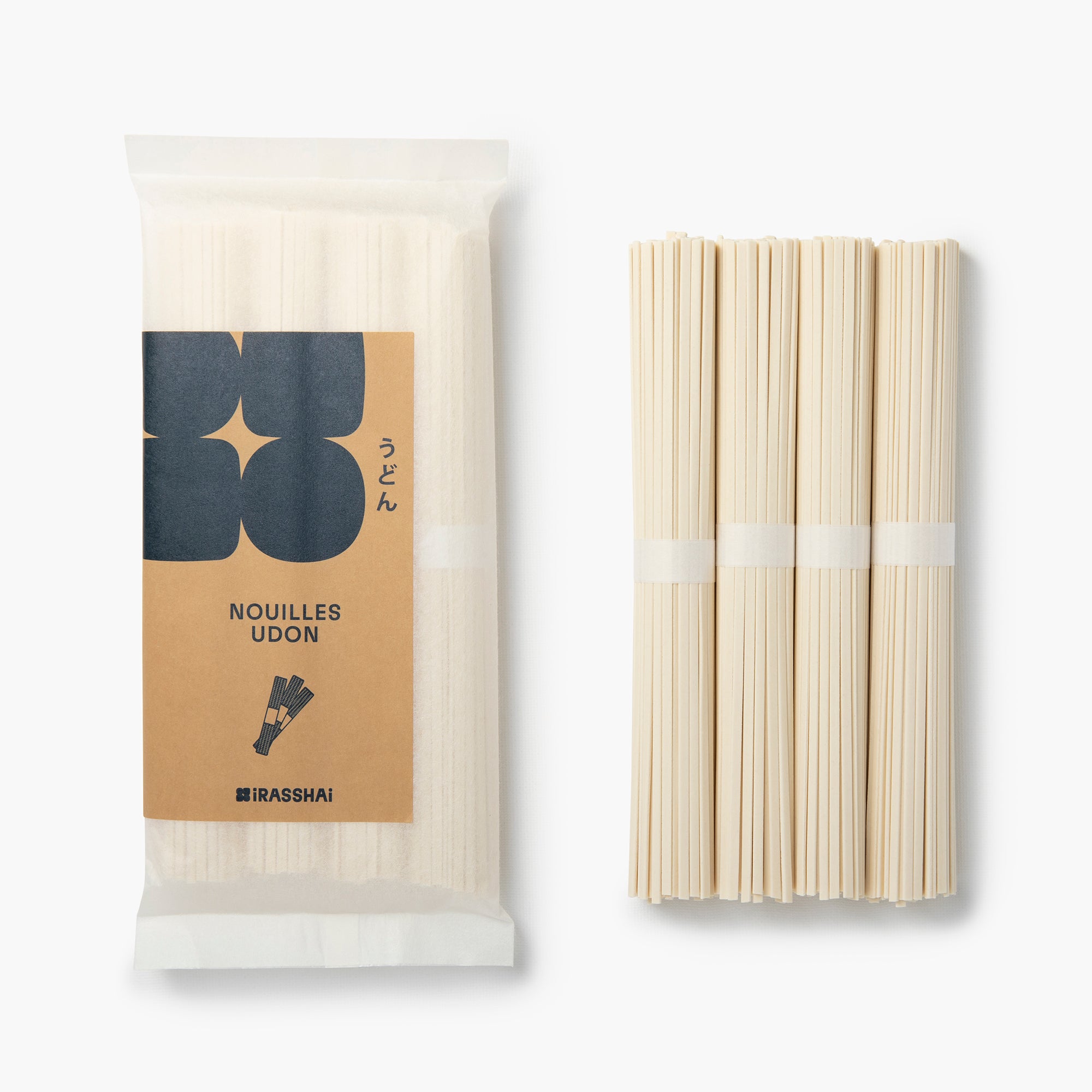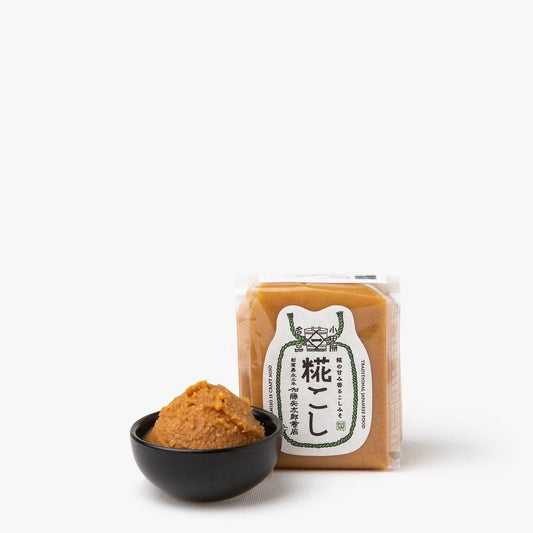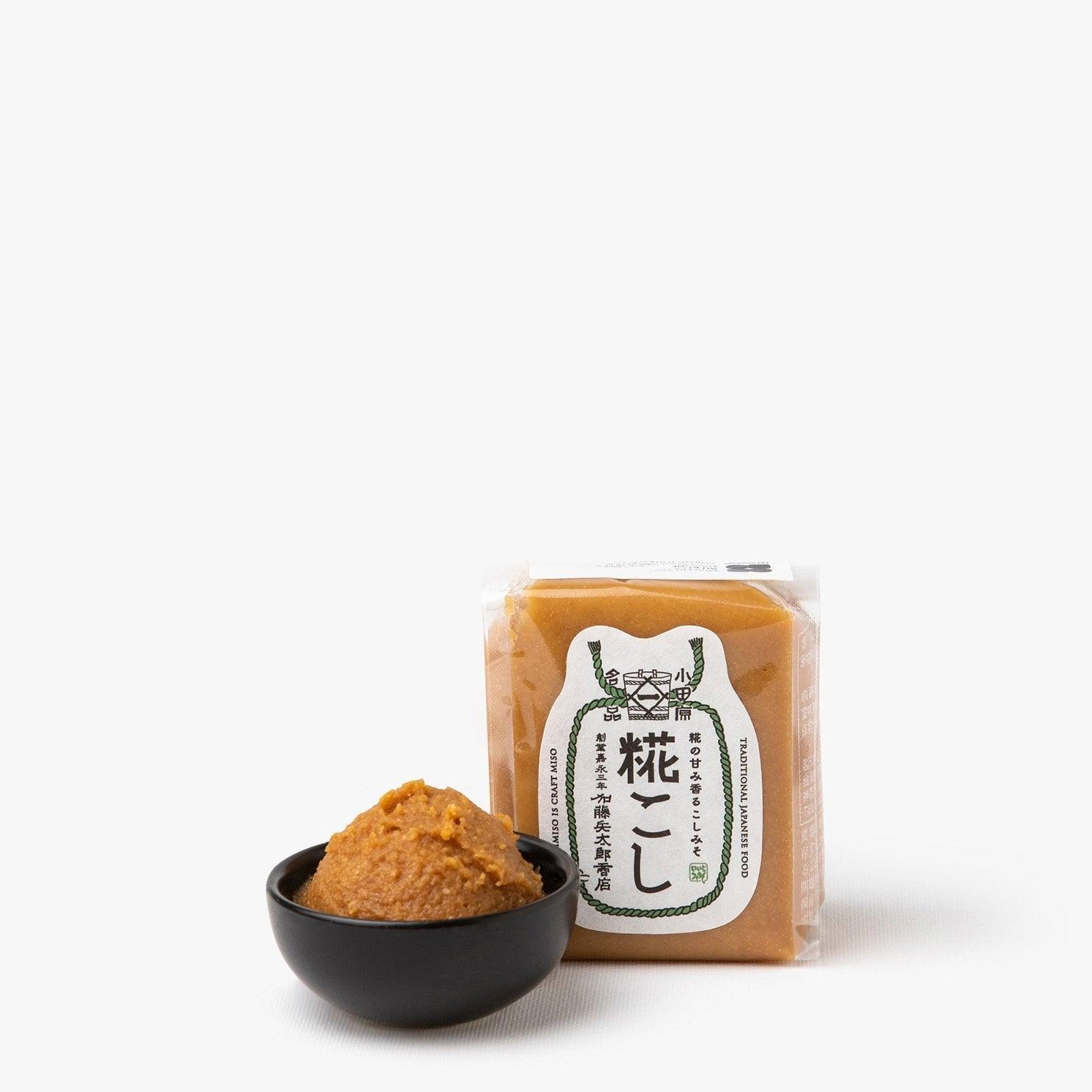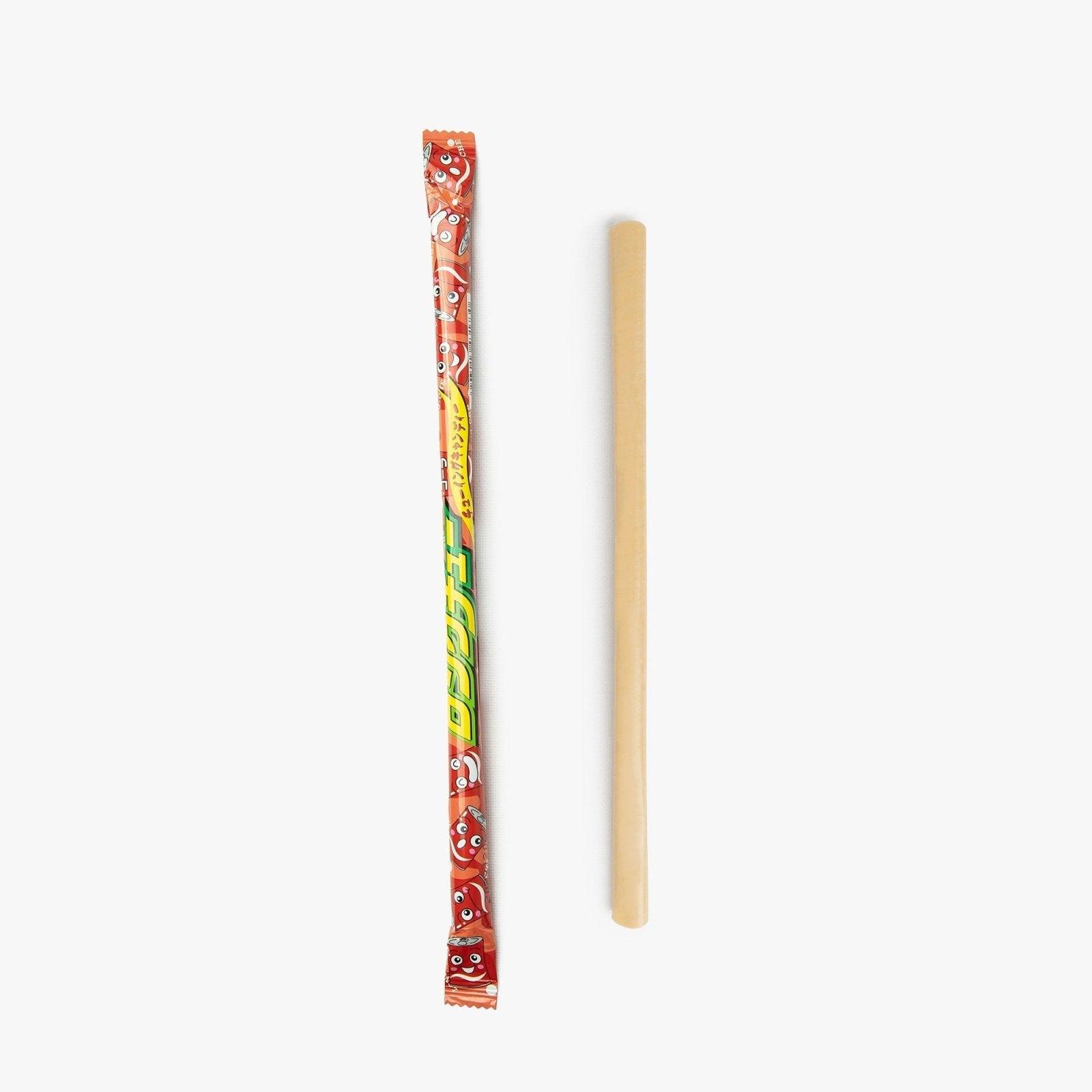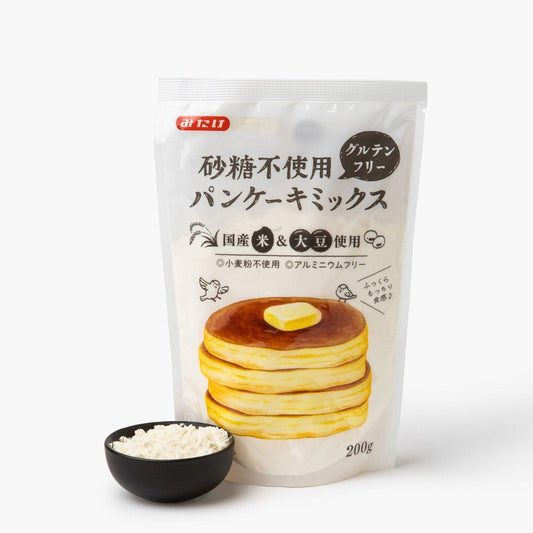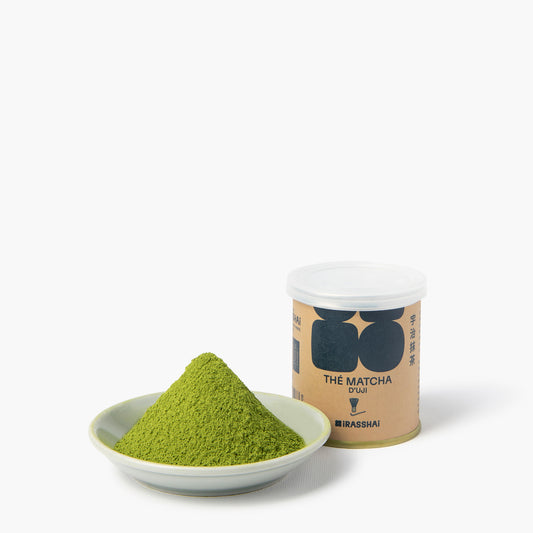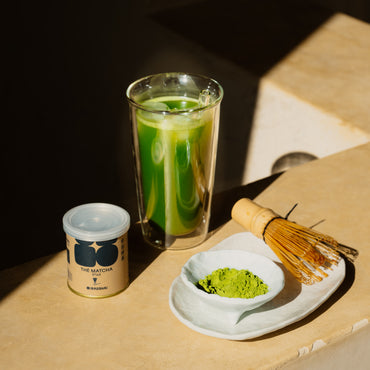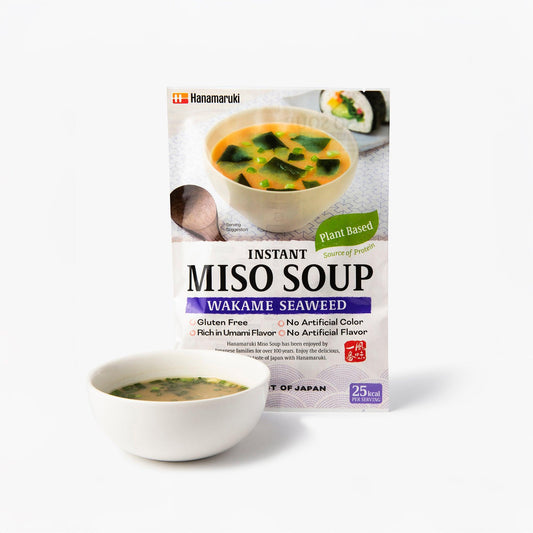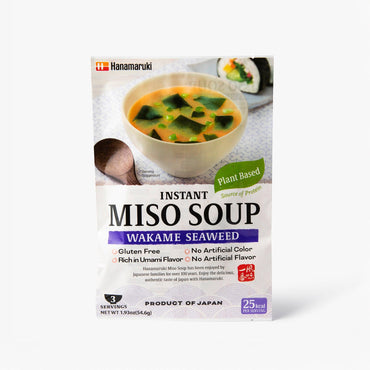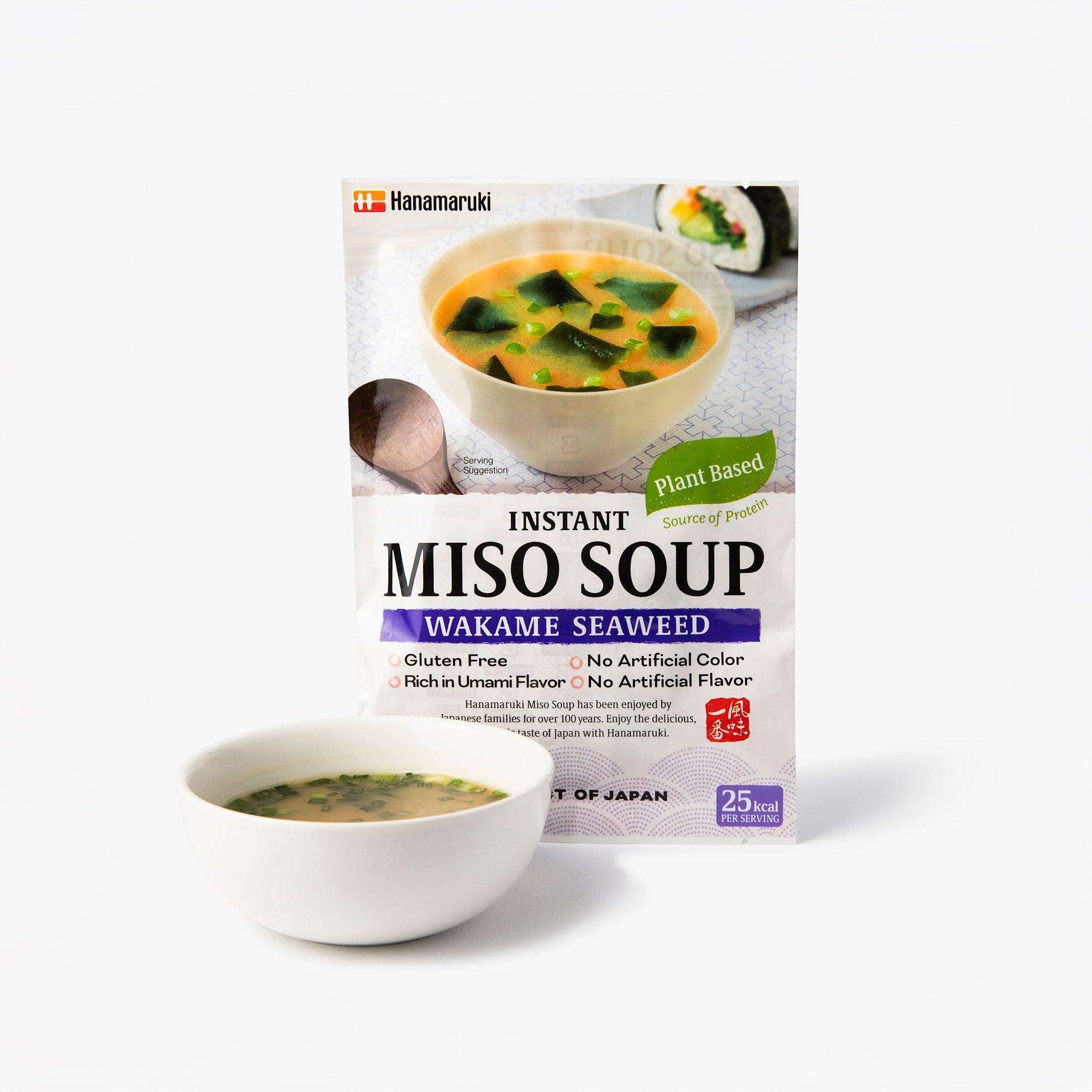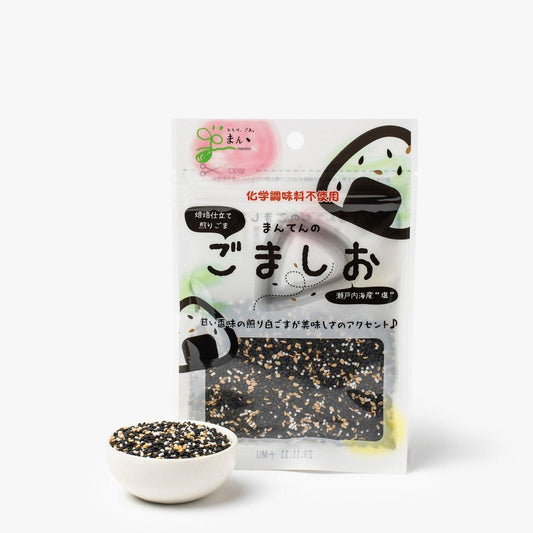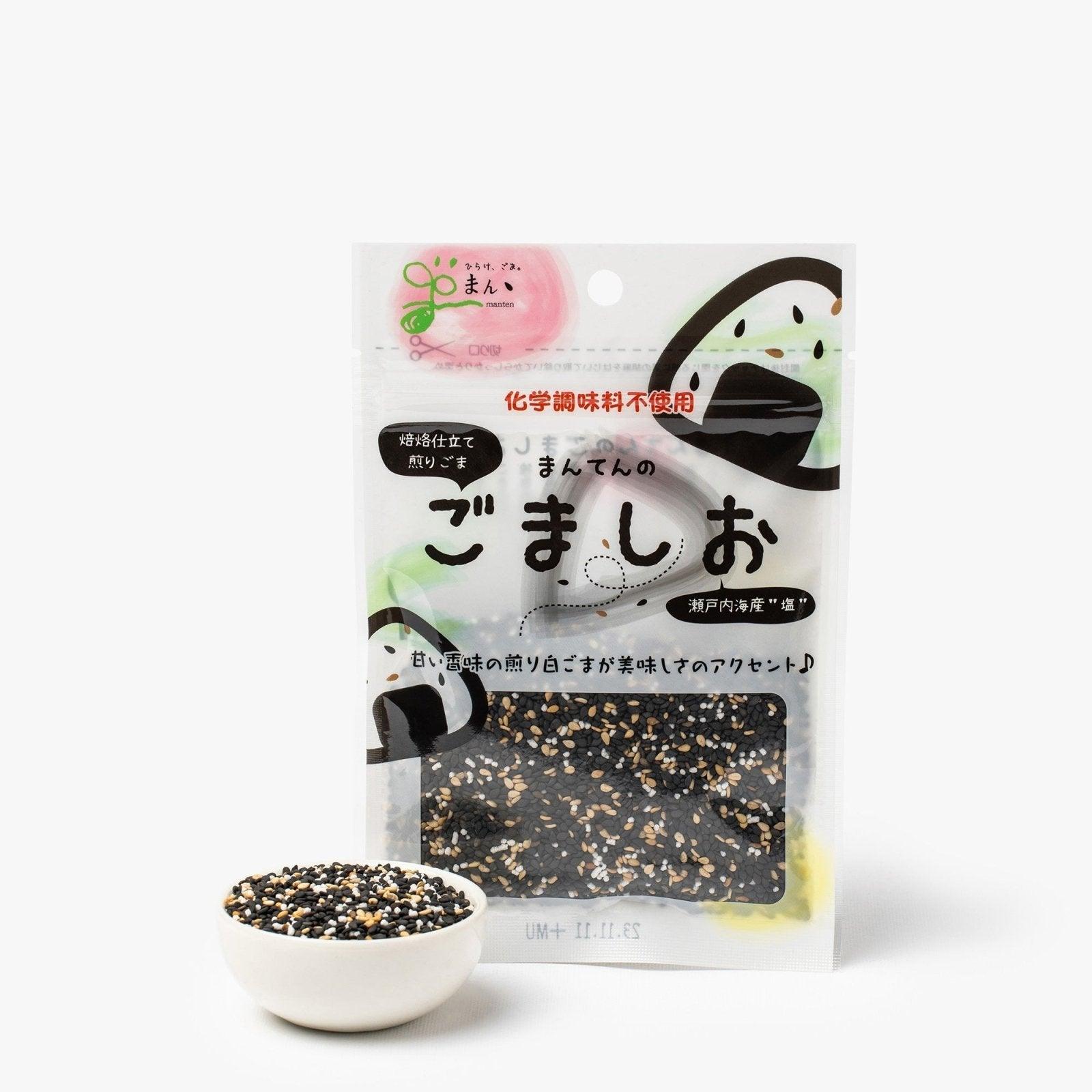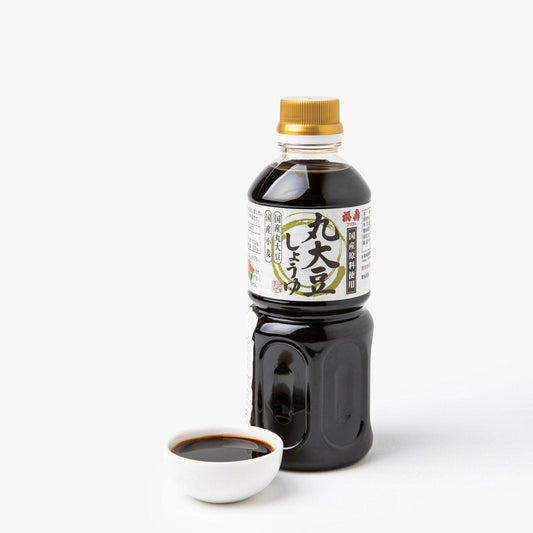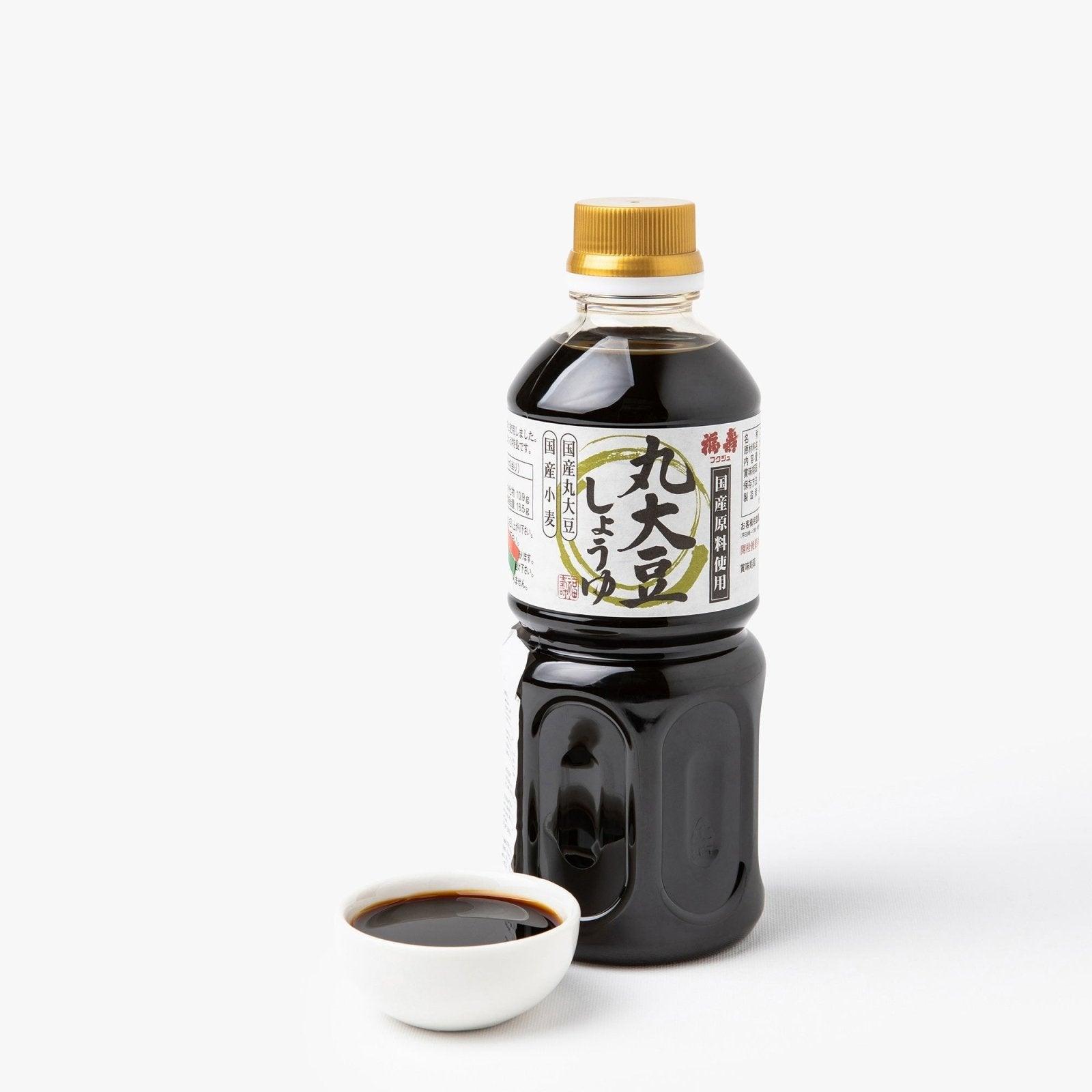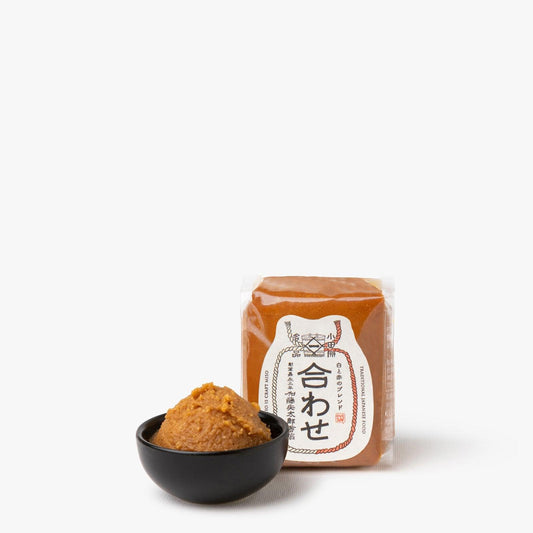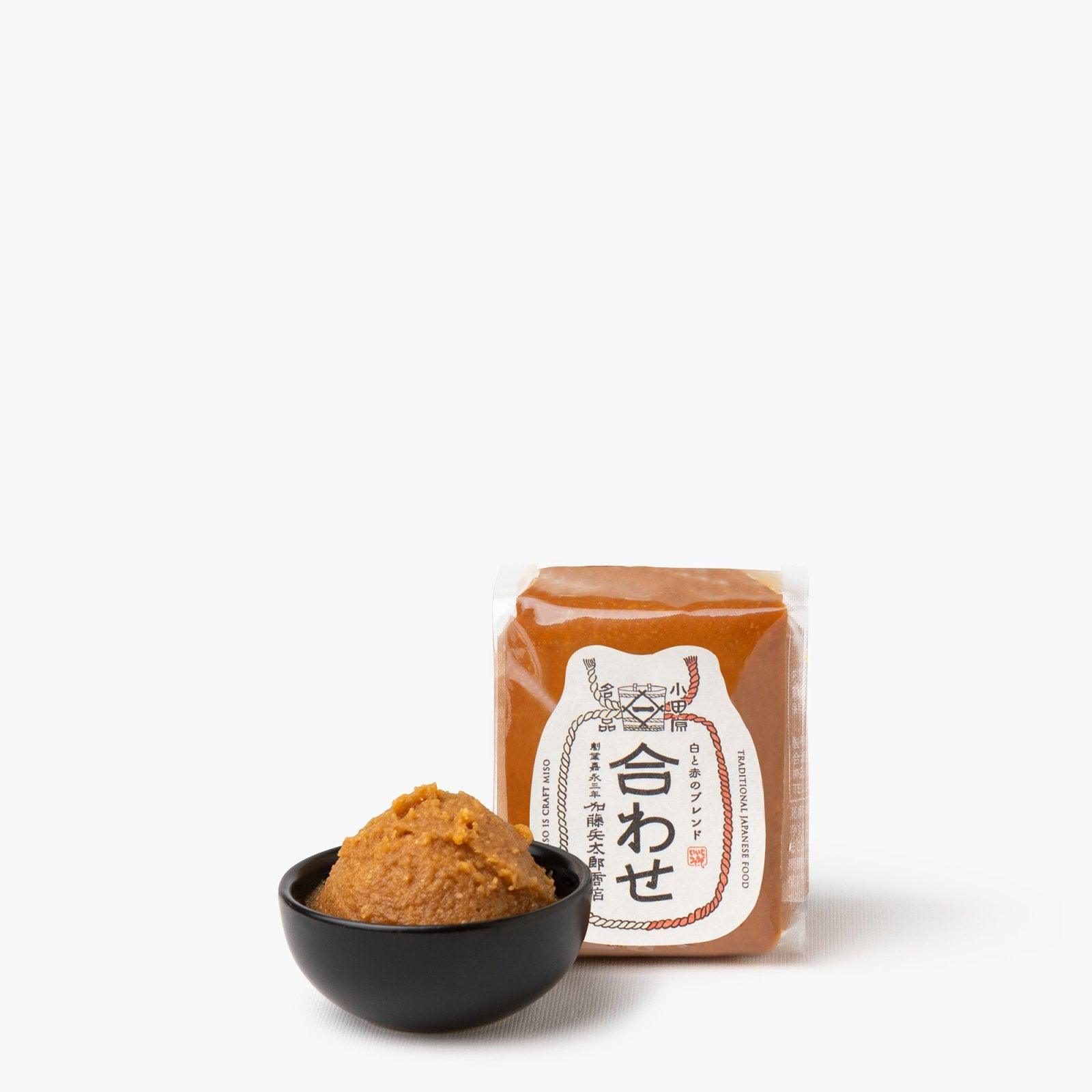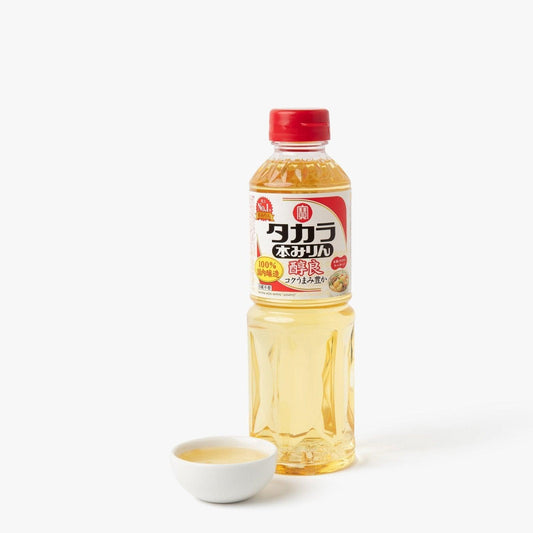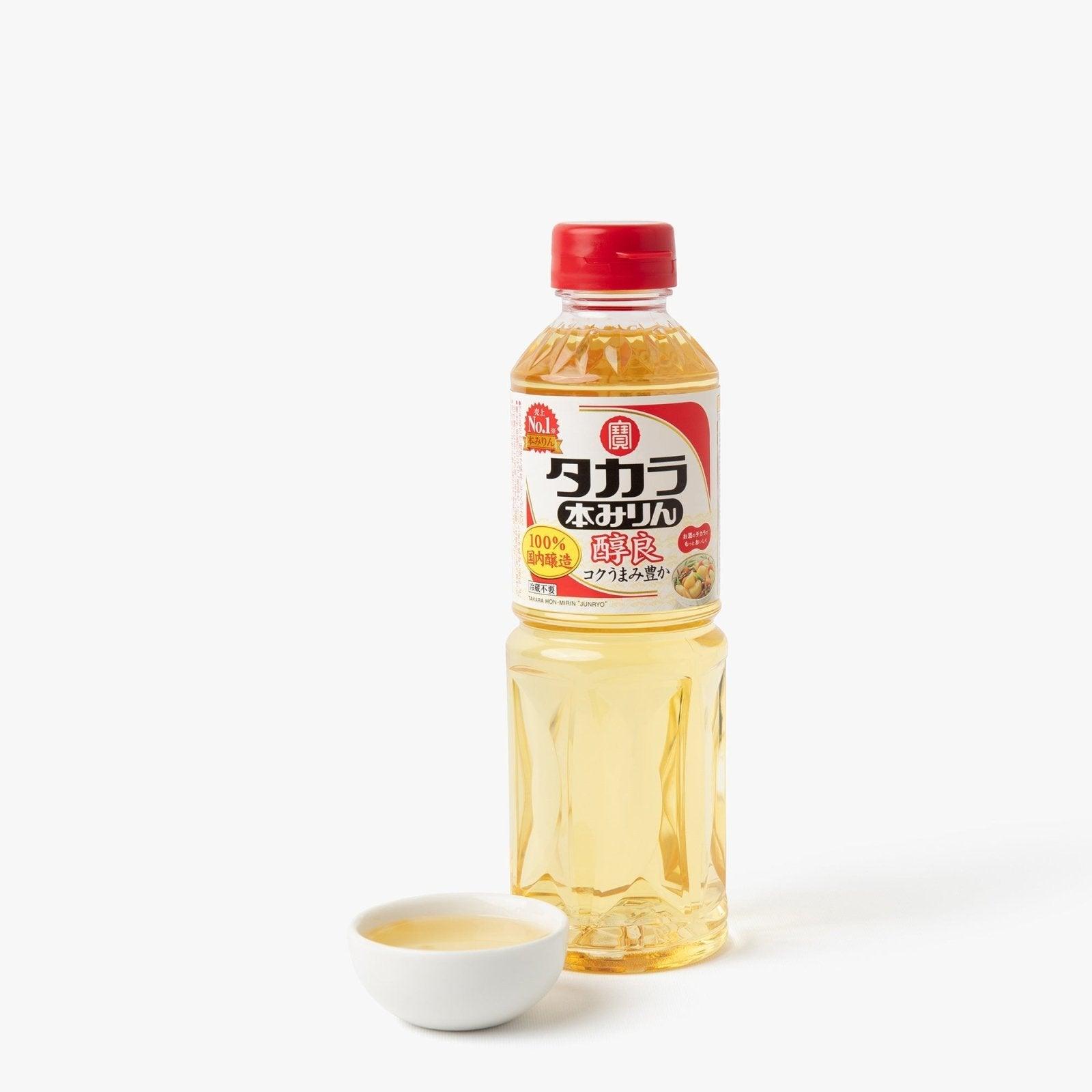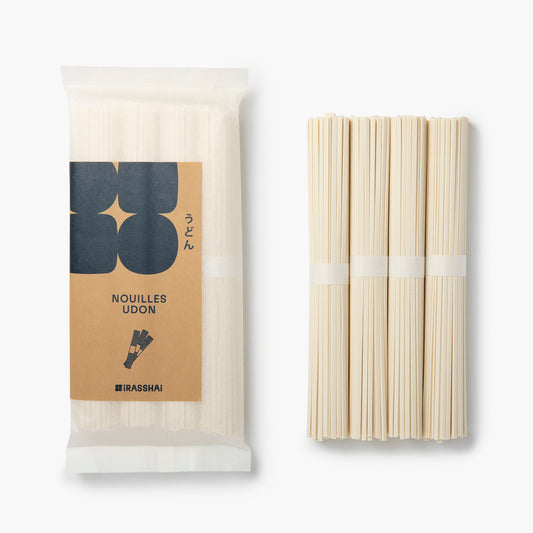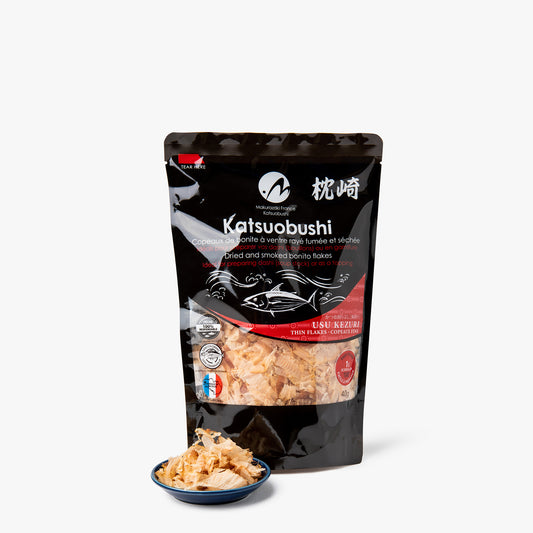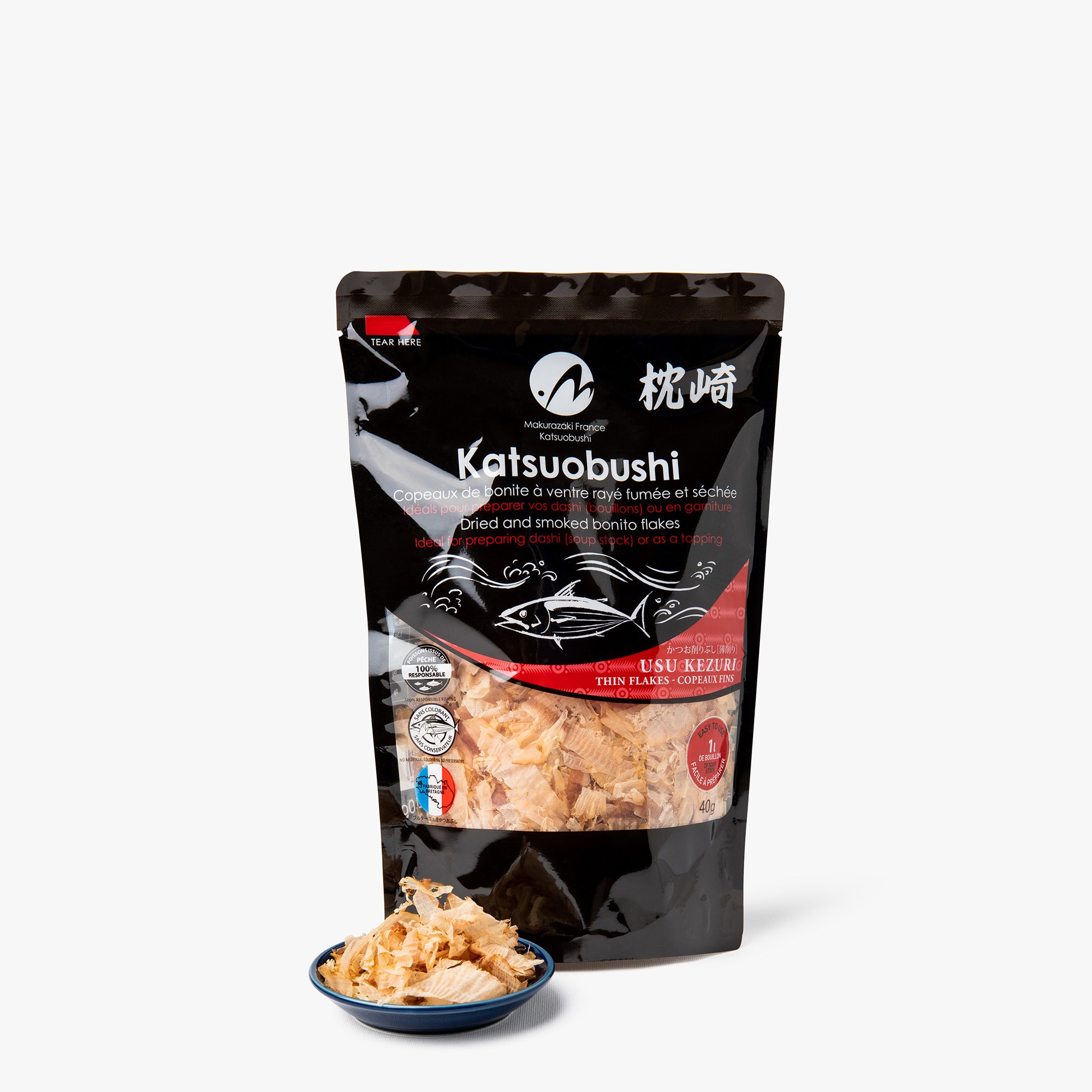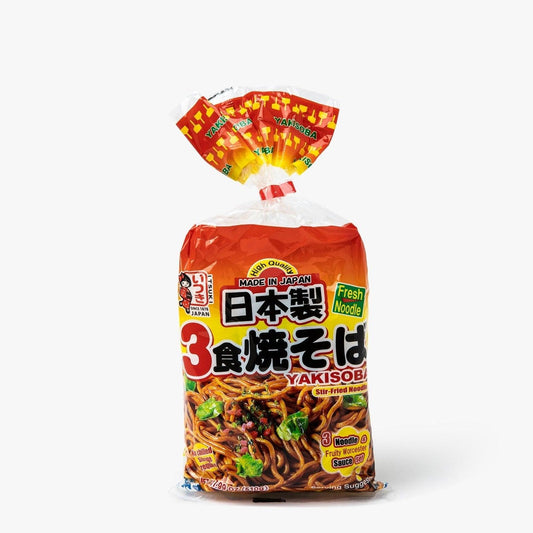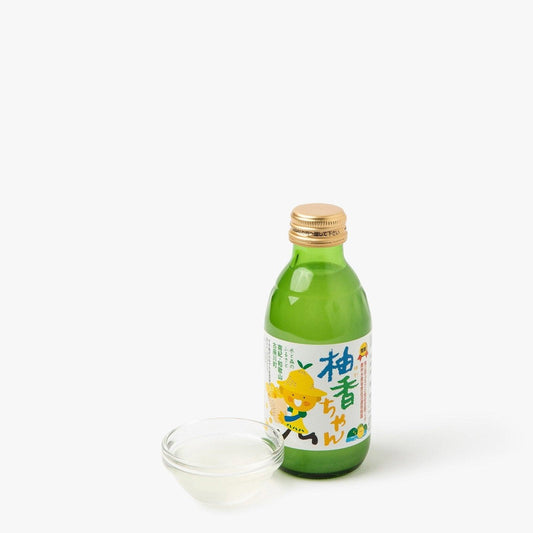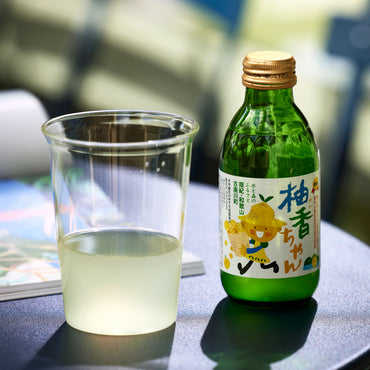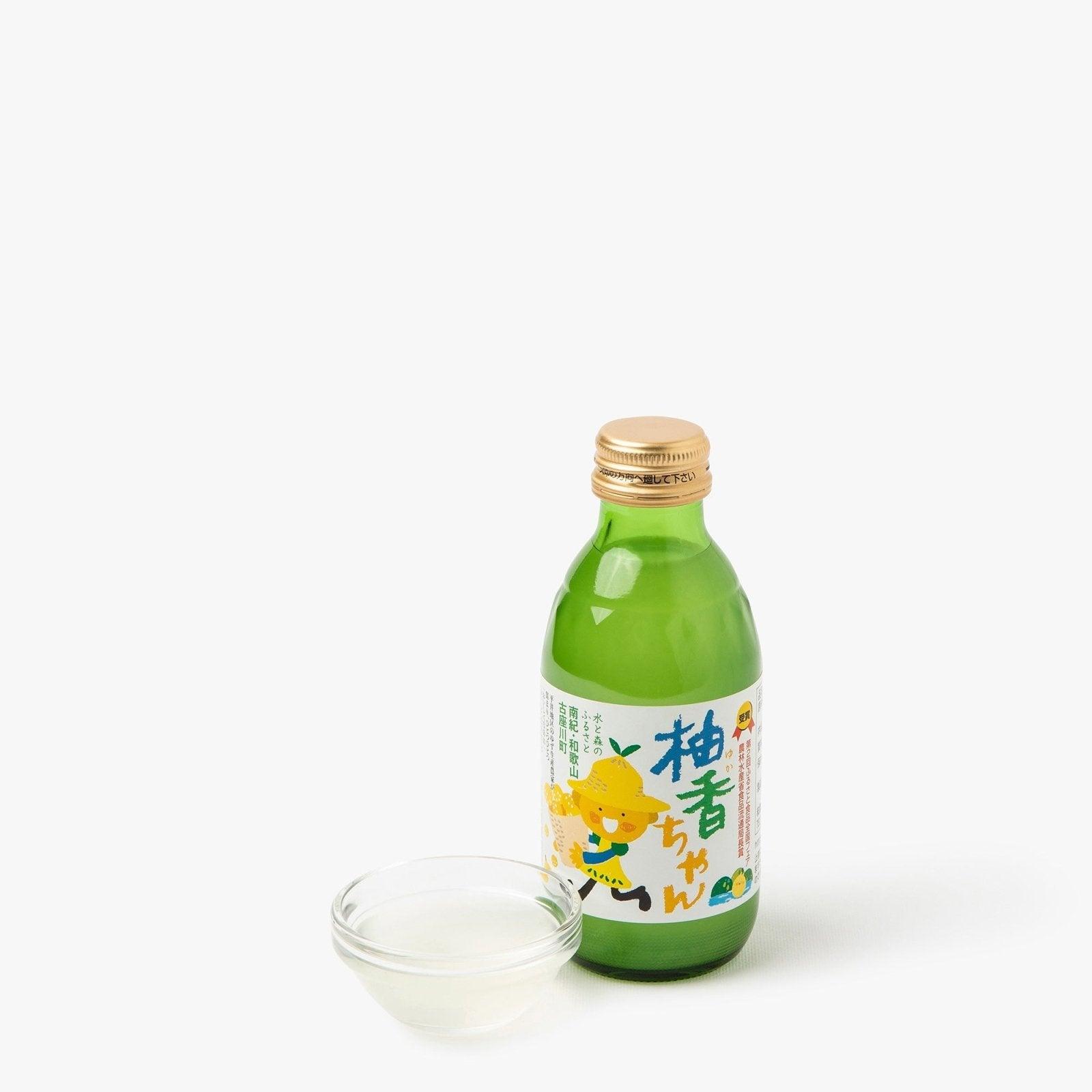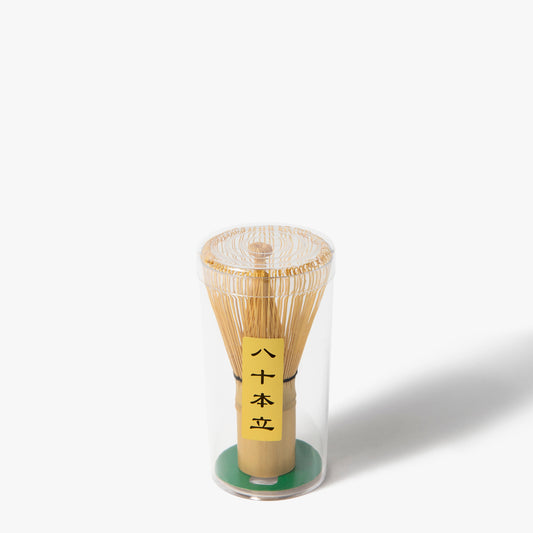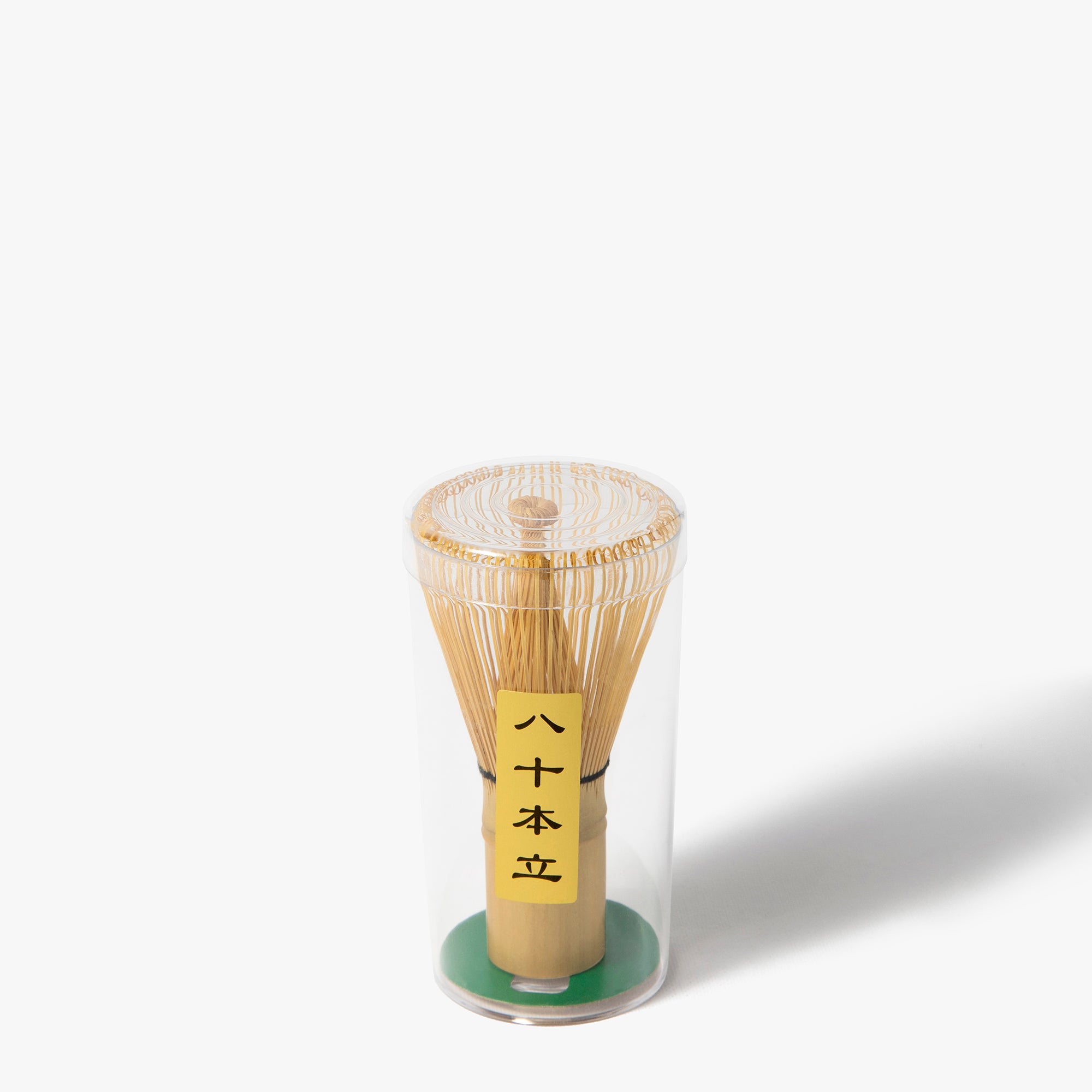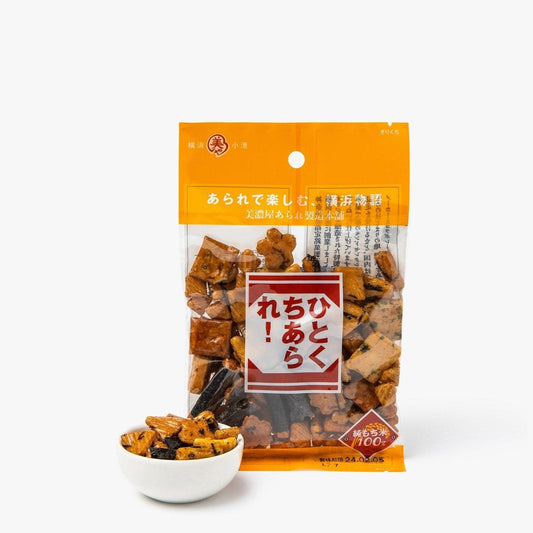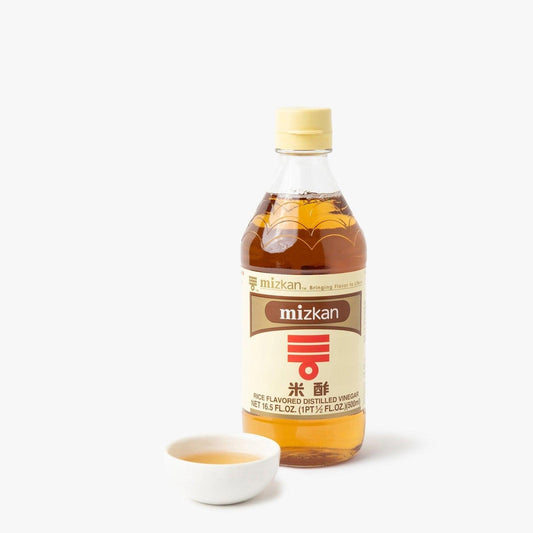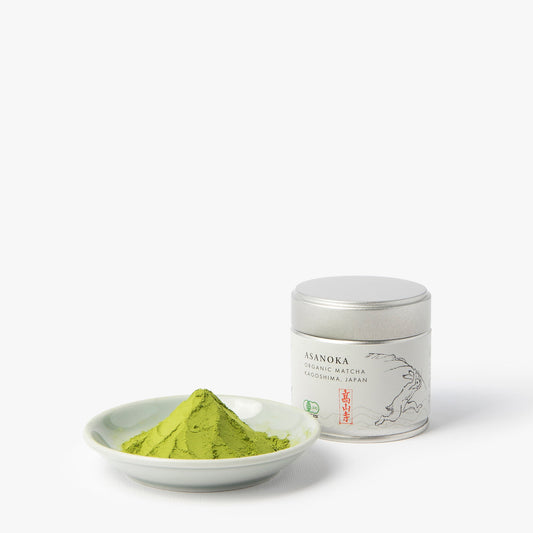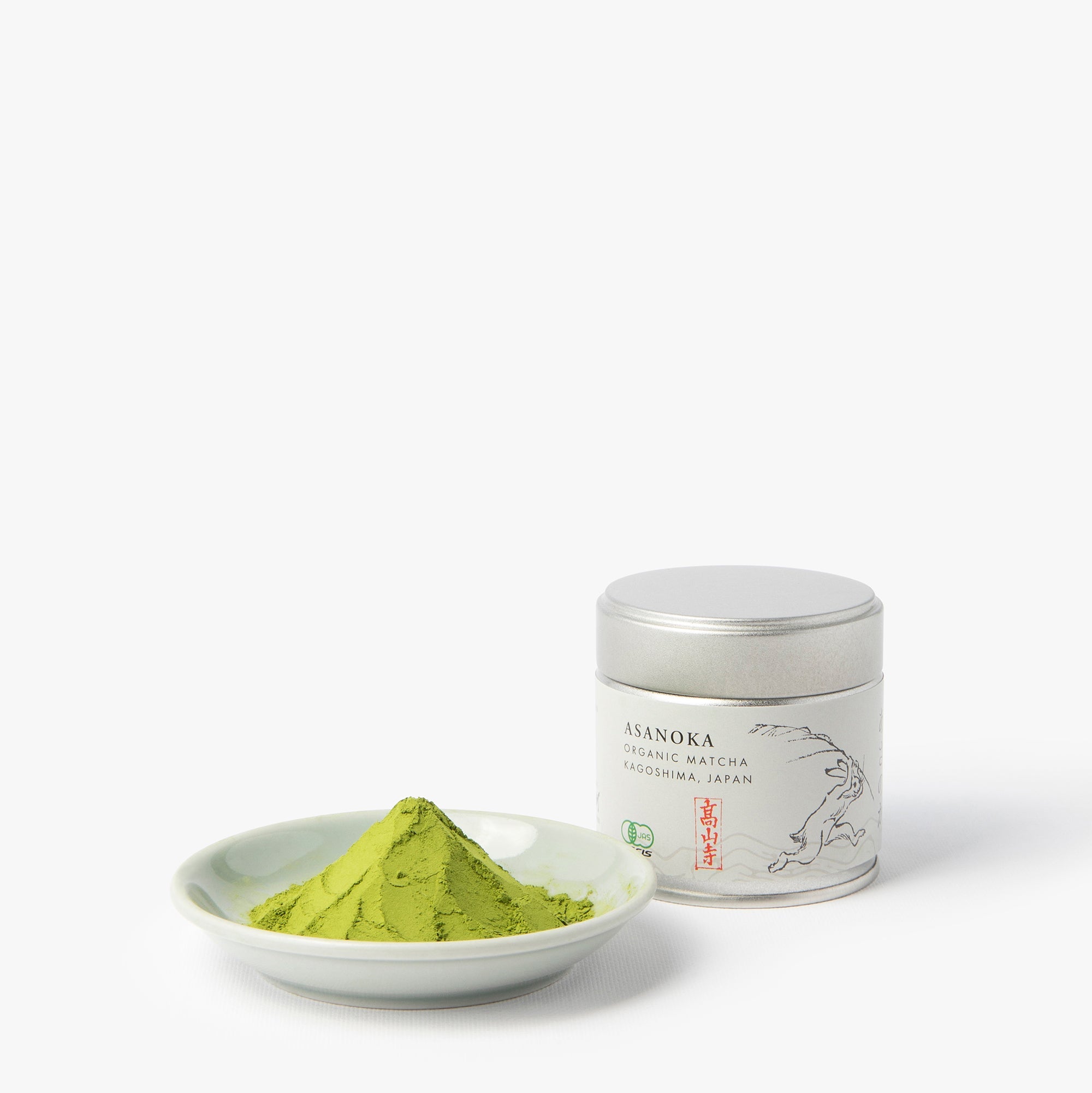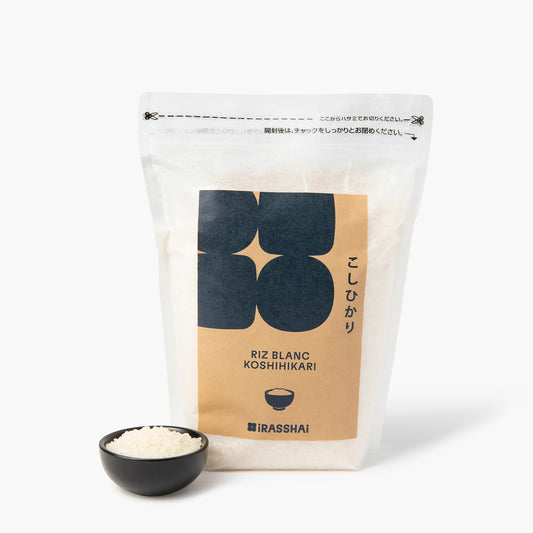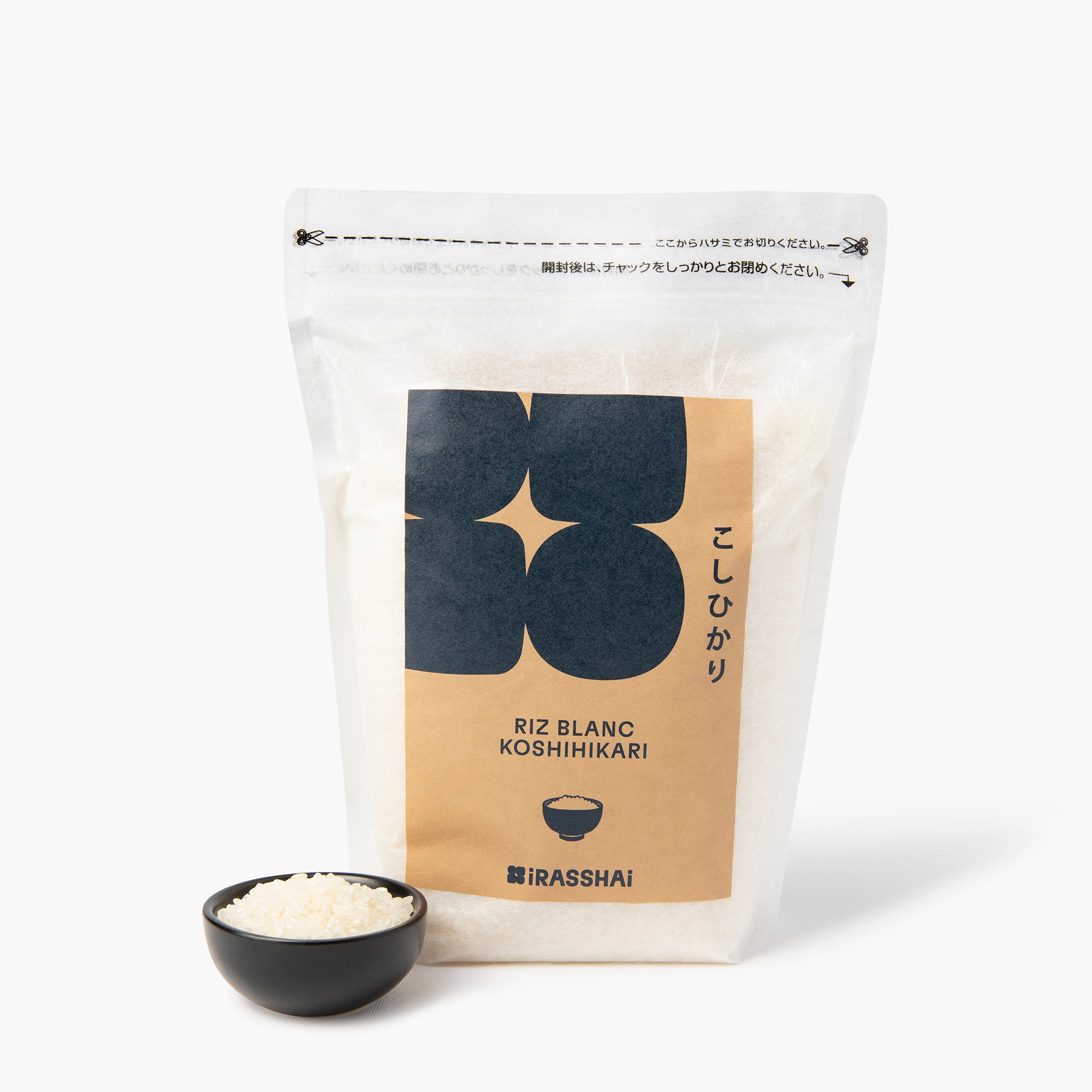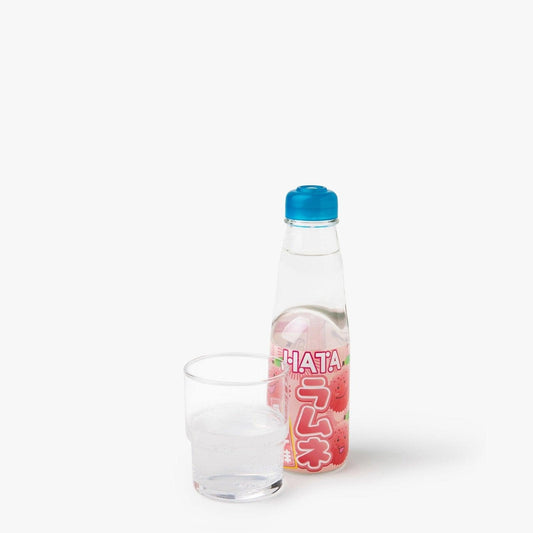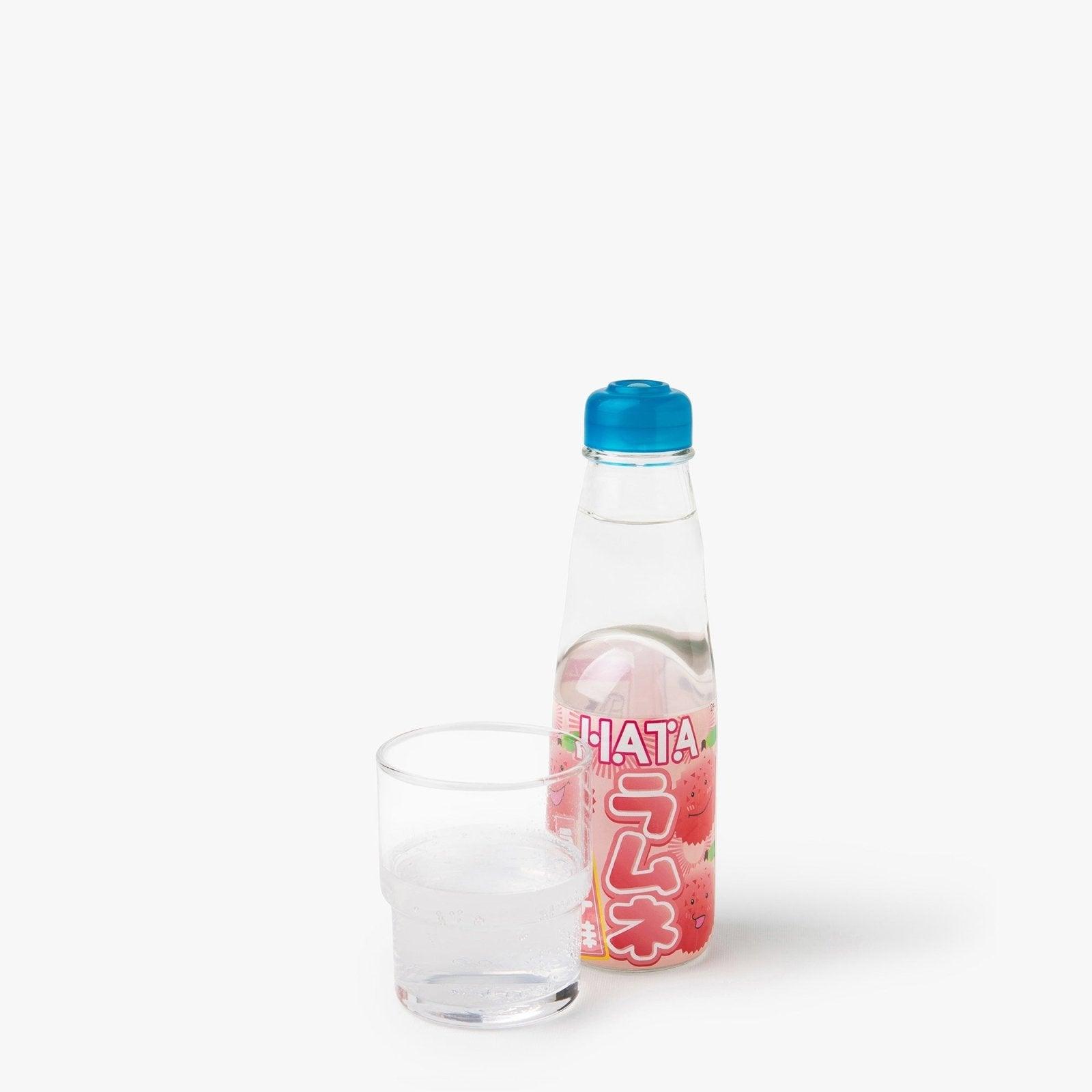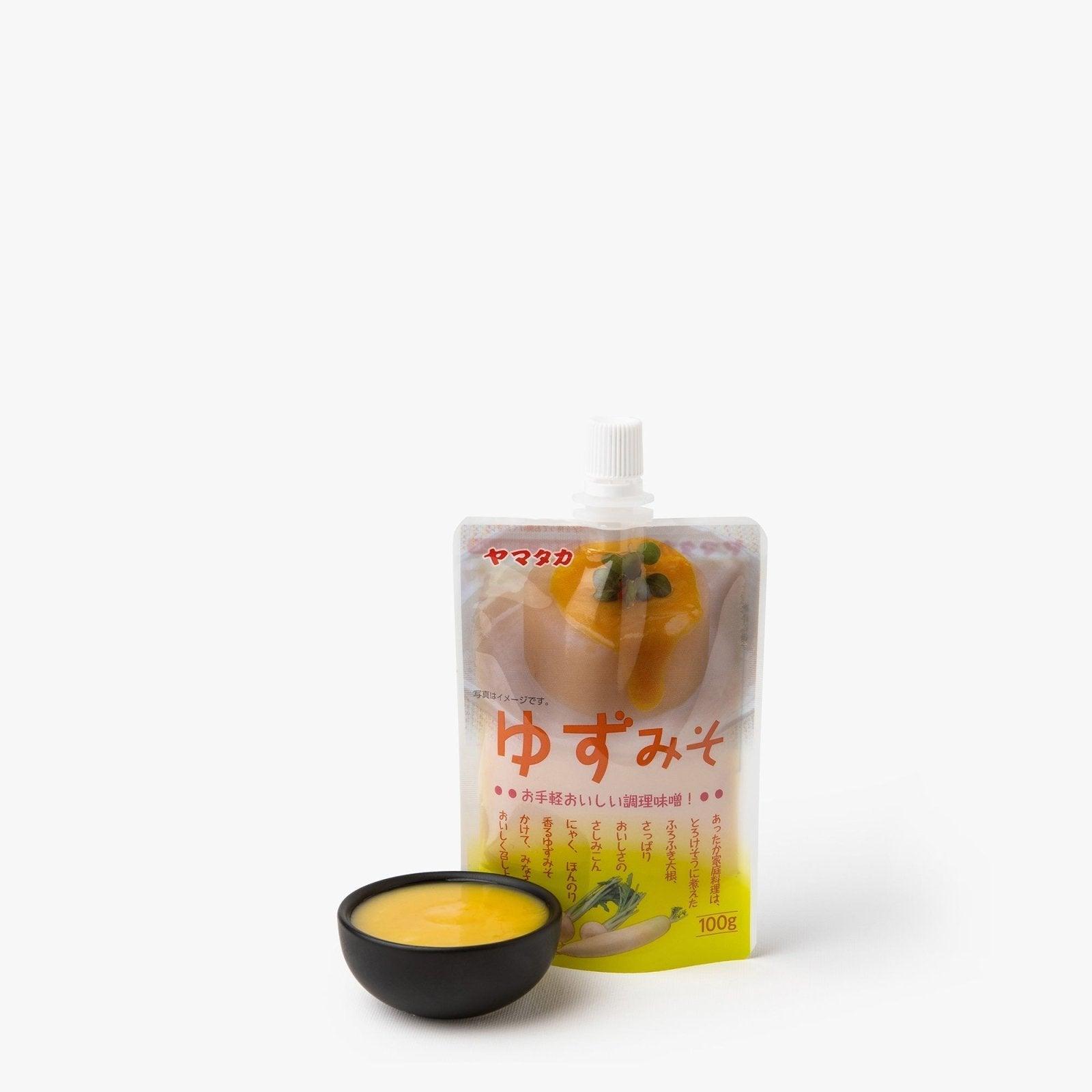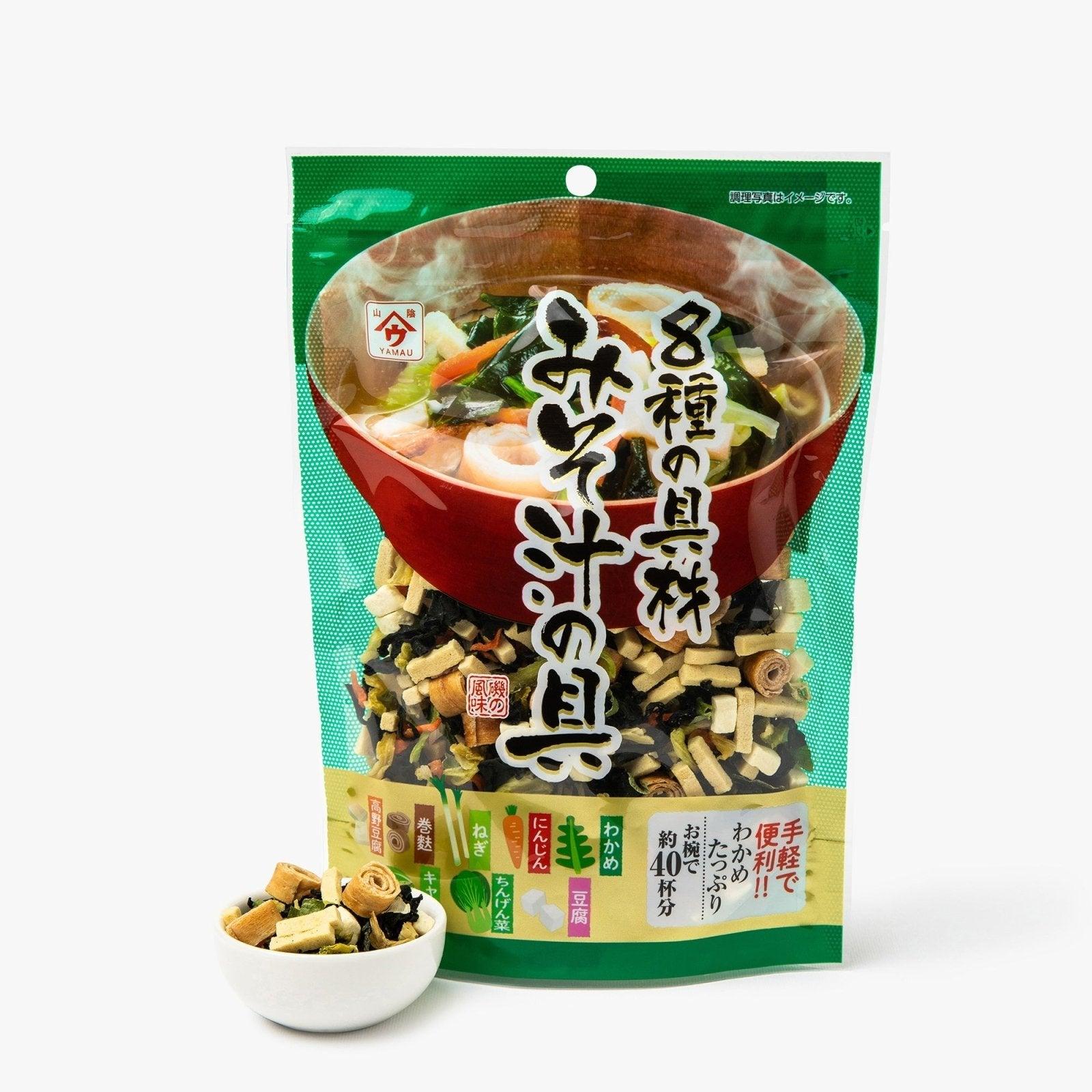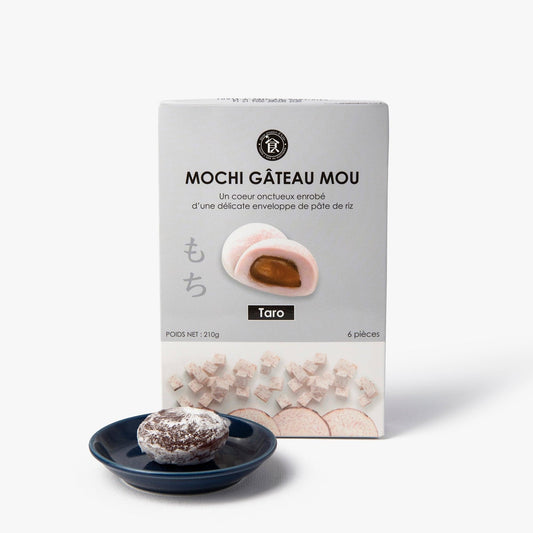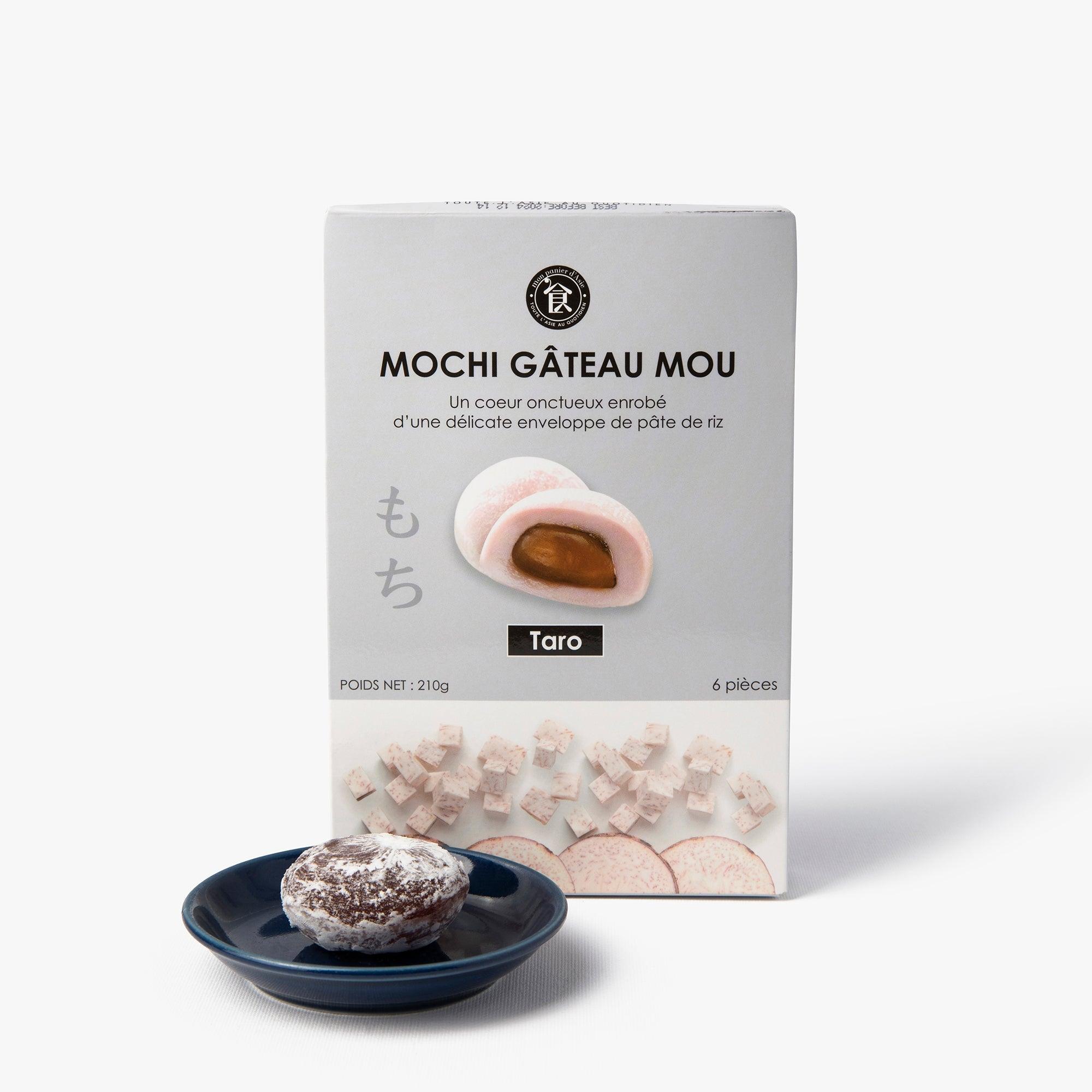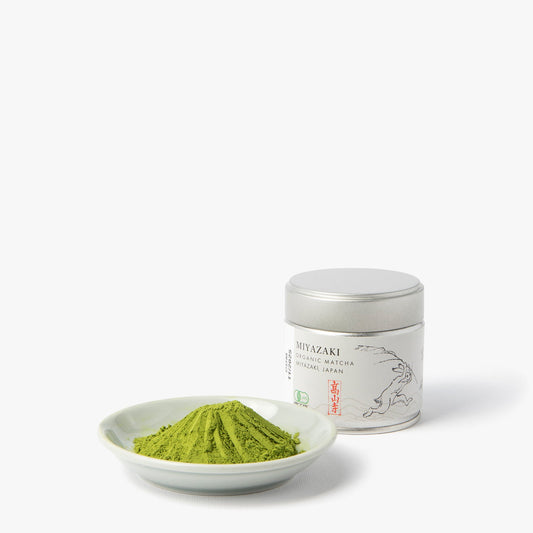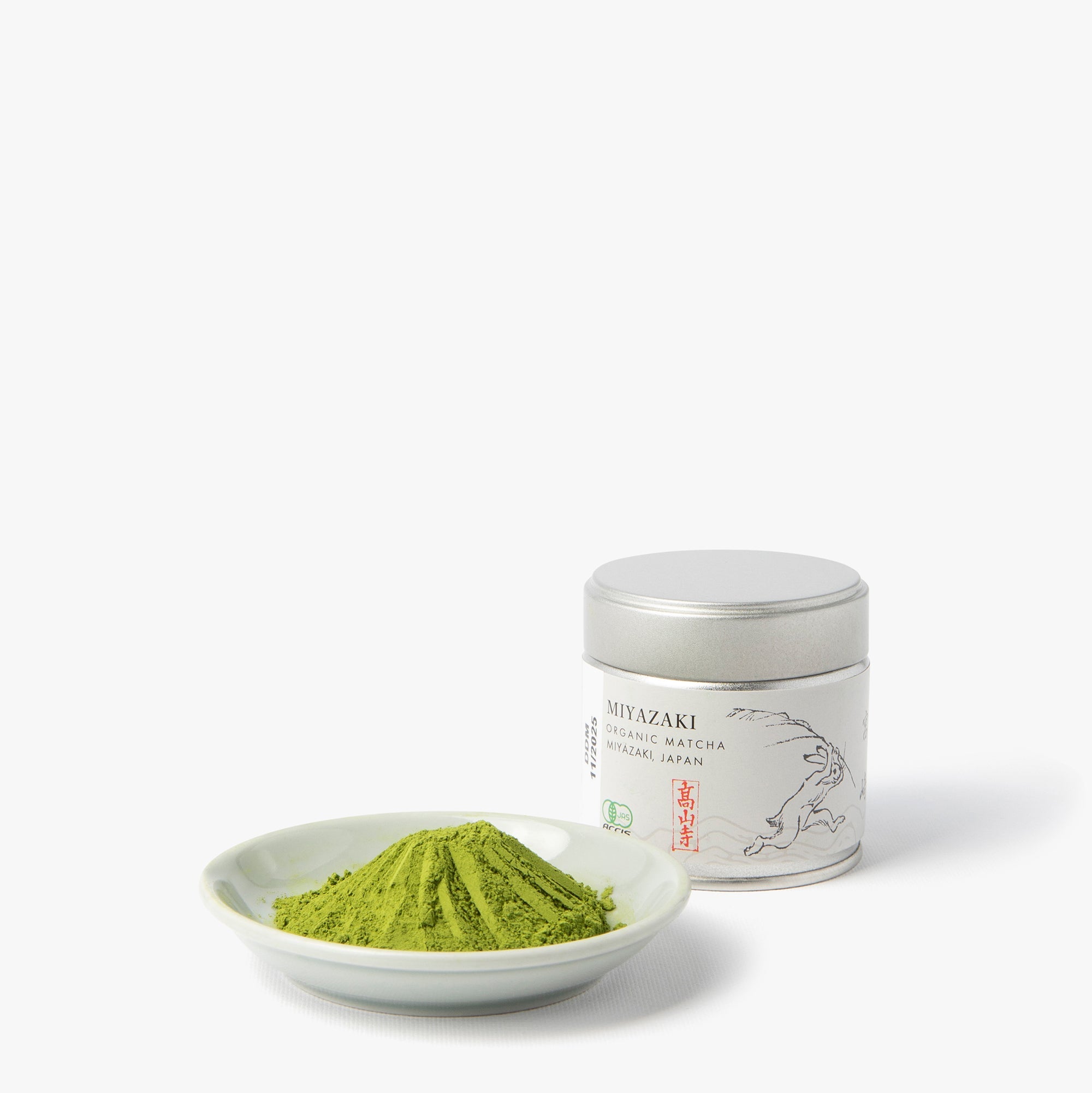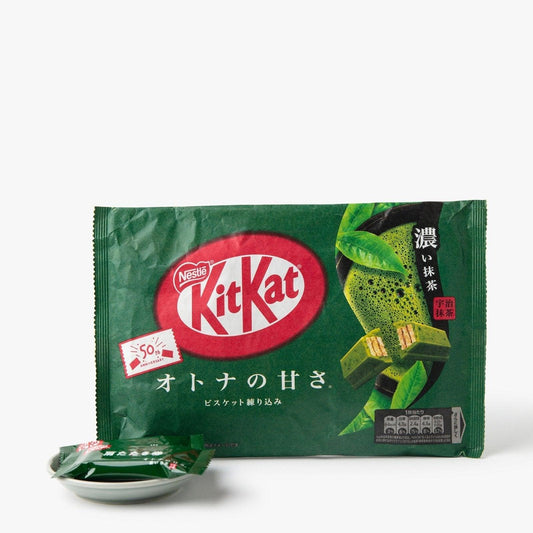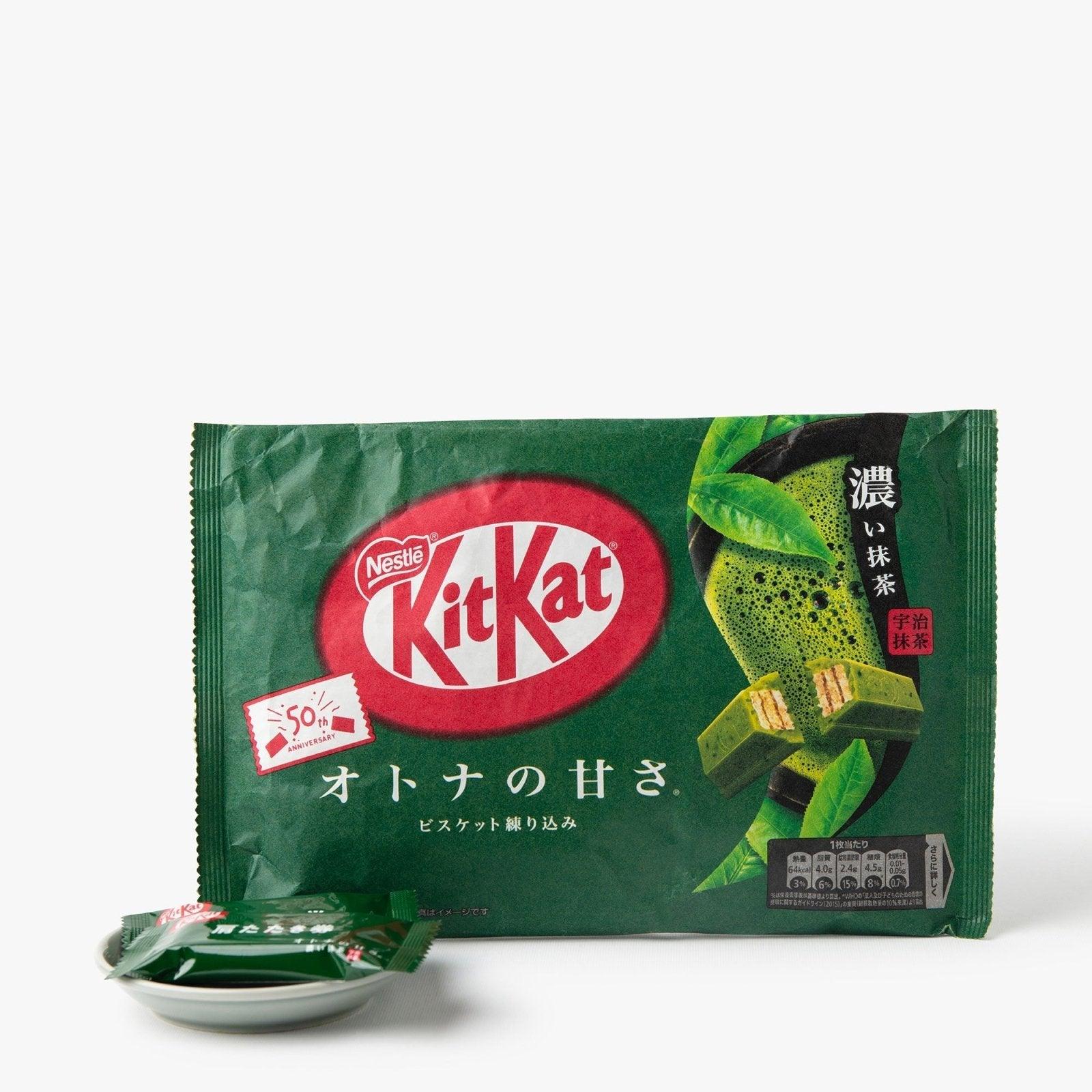Collection: All our Japanese products
After more than two years spent meticulously sourcing them, iRASSHAi offers you a selection of over 1000 products, imported from Japan, three quarters of which are being sold in France for the first time. Discover authentic Japanese grocery products to enhance your cooking! And if you don't know where to start, we regularly write recipes for all tastes and levels to give you ideas.

-
Classic matcha tea Uji Sakura from Kyoto ⋅ Yamamasa Koyamaen ⋅ 30g
⋅ Matcha from Kyoto's Uji region, renowned for its quality⋅ Highly prized and made in very limited quantities⋅ Ideal for beginners to discover matcha⋅ Blend of...
Regular price 19.00 €Prix promotionnel 19.00 € Regular pricePrice per unit 633.33 € / per kg -
Natural grated wasabi paste ⋅ Muso ⋅ 43g
⋅ Made from real wasabi⋅ Perfect with meats or raw fish⋅ For spicing up soups, marinades, sauces and cocktails⋅ Fresh, tangy tasteThis...
Regular price 3.60 €Prix promotionnel 3.60 € Regular pricePrice per unit 83.72 € / per kg -
White miso with koji from Hakone ⋅ Kato Heitaro shoten ⋅ 200g
⋅ Totally handmade⋅ Small producer⋅ Premium⋅ Perfect in marinade⋅ Miso made in wooden barrelsThe addition of koji gives this miso a...
Regular price 5.50 €Prix promotionnel 5.50 € Regular pricePrice per unit 27.50 € / per kg -
Black tea with lemon ⋅ Kirin ⋅ 500ml
⋅ Lemon-infused black tea⋅ Made from quality black tea⋅ Perfect balance between the acidity of lemon and a sweetness that evokes the...
Regular price 2.80 €Prix promotionnel 2.80 € Regular pricePrice per unit 5.60 € / per l -
Yaokin Long-Chew cola-flavored chewy candy ⋅ Yaokin ⋅ 30g
⋅ A candy with a firm texture⋅ Measures 20 centimetres long!⋅ Ideal for children⋅ Cola tasteThis 20 cm long candy has the...
Regular price 0.95 €Prix promotionnel 0.95 € Regular pricePrice per unit 31.67 € / per kg -
Totebag indigo logo iRASSHAi ⋅ iRASSHAi
The iRASSHAi indigo totebag is perfect for carrying all your favourite iRASSHAi products and will accompany you all day long!
Regular price 9.00 €Prix promotionnel 9.00 € Regular pricePrice per unit / per -
Yaokin Long-Chew grape-flavored chewy candy ⋅ Yaokin ⋅ 30g
⋅ A candy with a firm texture⋅ Measures 20 centimetres long!⋅ Ideal for children⋅ Grape flavourThis 20 cm long grape candy...
Regular price 0.95 €Prix promotionnel 0.95 € Regular pricePrice per unit 31.67 € / per kg -
Potato chips with wasabi and nori seaweed ⋅ KOIKEYA ⋅ 100g
⋅ Crispy chips with wasabi and nori seaweed⋅ Zesty, umami flavors⋅ Prepared from quality potatoes⋅ Ideal as an aperitifCrispy chips with...
Regular price 2.40 €Prix promotionnel 2.40 € Regular pricePrice per unit 24.00 € / per kg -
Instant miso soup with tofu 3 servings ⋅ hanamaruki ⋅ 54g
⋅ A vegan miso soup ready in an instant⋅ Rich, deep flavors thanks to a quality miso paste⋅ 3 servings⋅ Enjoy on its own...
Regular price 3.80 €Prix promotionnel 3.80 € Regular pricePrice per unit 70.37 € / per kg -
Salty lychee juice ⋅ Kirin ⋅ 500ml
⋅ Refreshing lychee drink⋅ Sweet and tangy flavor, with a hint of salt⋅ Ideal chilled⋅ Drink alone, with a meal or as a base...
Regular price 3.20 €Prix promotionnel 3.20 € Regular pricePrice per unit 6.40 € / per l -
Mix of 7 shichimi spices ⋅ Yawataya Isogoro ⋅ 14g
⋅ I'm used in SHOKUDO!⋅ Ideal as a table seasoning⋅ Rich, spicy taste⋅ In ramen or on grilled meatsThe traditional blend of seven spices...
Regular price 4.50 €Prix promotionnel 4.50 € Regular pricePrice per unit 321.43 € / per kg -
Totebag quadricolore logo iRASSHAi ⋅ iRASSHAi
The four-colored iRASSHAi totebag is perfect for carrying all your favorite iRASSHAi products and will accompany you all day long! PS : you...
Regular price 9.00 €Prix promotionnel 9.00 € Regular pricePrice per unit / per -
Soy flour pancake mix ⋅ Mitake Food Industry ⋅ 200g
⋅ Made from Hokkaido soy flour and rice flour⋅ Gluten-free⋅ No additives or preservatives⋅ Quick preparationIdeal for people suffering from...
Regular price 4.95 €Prix promotionnel 4.95 € Regular pricePrice per unit 24.75 € / per kg -
Mochi filled with red azuki beans ⋅ Mon panier d'asie ⋅ 210g
⋅ Traditional mochi⋅ ideal as a snack, for afternoon tea or a tea ceremony⋅ Elastic, melt-in-your-mouth texture⋅ Enjoy anytimeThese bean mochi...
Regular price 4.50 €Prix promotionnel 4.50 € Regular pricePrice per unit 21.43 € / per kg -

NEW PRODUCTS
-
Jasmine infusion ⋅ Kobe Sabo ⋅ 500ml
⋅ Floral jasmine infusion⋅ No added sugar⋅ Healthy alternative to soda⋅ Refreshingly subtle tasteA sweet, floral infusion that counterbalances the...
Regular price 2.10 €Prix promotionnel 2.10 € Regular pricePrice per unit 4.20 € / per l -
Mochi filled with green tea ⋅ Mon panier d'asie ⋅ 210g
⋅ Ideal for snacking, or a tea ceremony⋅ Soft, creamy texture⋅ Fresh green tea tasteThese green tea mochis combine a textural...
Regular price 4.50 €Prix promotionnel 4.50 € Regular pricePrice per unit 21.43 € / per kg -
Rehydrating drink Pocari Sweat ⋅ Otsuka Seiyaku ⋅ 500ml
⋅ Rehydrating, lightly salted drink⋅ Very popular in Japan⋅ Ideal after sport, in case of dehydration or in hot weather⋅ Drink chilled while...
Regular price 3.10 €Prix promotionnel 3.10 € Regular pricePrice per unit 6.20 € / per l -
Powdered fish dashi broth ⋅ Shimaya ⋅ 40g
⋅ Grabulated dashi rich in umami⋅ Ready to use⋅ Dried bonito and kombu⋅ Extract Ideal in soups, sauces and stews⋅ The...
Regular price 3.50 €Prix promotionnel 3.50 € Regular pricePrice per unit 87.50 € / per kg -
Pickled ginger in vinegar ⋅ Daruma ⋅ 100g
⋅ Very thin slices of pickled ginger⋅ Delicious with sushi and maki⋅ Tangy, slightly spicy taste⋅ Perfect accompaniment to your rice bowls, bento,...
Regular price 2.20 €Prix promotionnel 2.20 € Regular pricePrice per unit 22.00 € / per kg -
Classic matcha tea Kaede from Uji in Kyoto ⋅ Yamamasa Koyamaen ⋅ 100g
⋅ Matcha from Kyoto Uji, renowned for its quality⋅ Second and third harvests for aromatic intensity⋅ Ideal for matcha latte⋅ Rich in antioxidants⋅ Numerous...
Regular price 29.00 €Prix promotionnel 29.00 € Regular pricePrice per unit 290.00 € / per kg -
Instant ramen with gluten-free vegan miso ⋅ Kobayashi Noodle ⋅ 89g
⋅ Quick cooking⋅ Vegan, gluten-free, and halal⋅ Rich and flavorful miso-based broth⋅ Customizable with seaweeds, corn, or other vegetablesThis ramen...
Regular price 4.10 €Prix promotionnel 4.10 € Regular pricePrice per unit 46.07 € / per kg -
Udon noodles 7 portions ⋅ Sanuki Bussan ⋅ 630g
⋅ Made according to the sanuki udon method⋅ Cook sautéed, in broth or as is⋅ 7 portions⋅ Hot or cold⋅ Ideal with curryThe...
Regular price 5.50 €Prix promotionnel 5.50 € Regular pricePrice per unit 8.73 € / per kg -
Saké de cuisine ⋅ Hinode ⋅ 13.5% ⋅ 400ml
⋅ Adds depth to simmered dishes and sauces⋅ Balances sweet and savory flavors⋅ Ideal for making meat and fish more tender in marinades⋅ Touche...
Regular price 5.20 €Prix promotionnel 5.20 € Regular pricePrice per unit 13.00 € / per l -
Classic matcha tea in a can ⋅ Aoi Seicha ⋅ 80g
⋅ Perfect for everyday use and for getting started with matcha⋅ Organically grown⋅ Canned to preserve aroma and limit oxidation⋅ Numerous benefits for the...
Regular price 32.00 €Prix promotionnel 32.00 € Regular pricePrice per unit 400.00 € / per kg -
Uji matcha tea ⋅ Yamamasa Koyamaen for iRASSHAi ⋅ 30g
⋅ Hand-harvested in Uji⋅ A healthy alternative to coffee⋅ For drinks, pastries or smoothiesThis matcha tea has been selected by iRASSHAi to be part of the...
Regular price 19.00 €Prix promotionnel 19.00 € Regular pricePrice per unit 633.33 € / per kg -
Soba noodles ⋅ Akagi ⋅ 270g
⋅ Made with buckwheat flour⋅ Quick cooking⋅ Enjoy cold with tsuyu sauce or hot in broth with tempura⋅ 3 portions...
Regular price 4.90 €Prix promotionnel 4.90 € Regular pricePrice per unit 18.15 € / per kg -
Potato chips with teriyaki sauce ⋅ Koikeya ⋅ 100g
⋅ Crispy chips with teriyaki sauce flavor⋅ Sweet⋅ salty seasoning typical of Japanese cuisine⋅ Prepared with quality potatoes⋅ Ideal for...
Regular price 2.40 €Prix promotionnel 2.40 € Regular pricePrice per unit 24.00 € / per kg -
Green tea ryokucha ⋅ Kobe Sabo ⋅ 500ml
⋅ Japanese green tea with an intense taste⋅ Herbal notes⋅ Enjoy hot or cold at any time⋅ Ideal for cocktailsThe taste is intense, with notes of...
Regular price 2.10 €Prix promotionnel 2.10 € Regular pricePrice per unit 4.20 € / per l -
Instant ramen with gluten-free vegan soy sauce ⋅ Kobayashi Noodle ⋅ 84g
⋅ Quick cooking⋅ Vegan, gluten-free, and halal⋅ Rich broth made with soy sauce⋅ Customizable with seaweeds, corn, or other vegetablesThis instant ramen...
Regular price 4.10 €Prix promotionnel 4.10 € Regular pricePrice per unit 48.81 € / per kg -
Pickled pink ginger in vinegar ⋅ Daruma ⋅ 100g
⋅ Very thin slices of pickled pink ginger⋅ Delicious with sushi and maki⋅ Tangy, slightly spicy taste⋅ Perfect accompaniment to your rice bowls,...
Regular price 2.20 €Prix promotionnel 2.20 € Regular pricePrice per unit 22.00 € / per kg -
Instant miso soup with wakame seaweed 3 servings ⋅ hanamaruki ⋅ 54g
⋅ Vegan miso soup spiced up with the umami of wakame⋅ Light, melting texture⋅ Ready in minutes⋅ Perfect on its own or with rice⋅ 3 servingsSoup...
Regular price 3.80 €Prix promotionnel 3.80 € Regular pricePrice per unit 70.37 € / per kg -
Vegan kombu dashi broth 5 sachets ⋅ Kayanoya ⋅ 30g
⋅ Base of many Japanese dishes⋅ In broth, soup or seasoning⋅ Rich, umami taste from kombu seaweed⋅ Rich in antioxidants⋅ Sachets...
Regular price 8.80 €Prix promotionnel 8.80 € Regular pricePrice per unit 293.33 € / per kg -
Roasted black and white sesame seeds with gomashio salt ⋅ Manten ⋅ 30g
⋅ Perfect for replacing salt⋅ On grills or in soups⋅ No additives or preservatives⋅ Rich in antioxidant mineralsMixture of sesame seeds...
Regular price 2.65 €Prix promotionnel 2.65 € Regular pricePrice per unit 88.33 € / per kg -
Soba noodles 100% buckwheat ⋅ Shinshu Togakushi Soba ⋅ 200g
⋅ Made with buckwheat flour⋅ Gluten-free⋅ Quick to cook⋅ Perfect in a hot broth with tempura⋅ Delicious cold with a men⋅ tsuyu sauceThese noodles...
Regular price 5.50 €Prix promotionnel 5.50 € Regular pricePrice per unit 27.50 € / per kg -
Lemonade ⋅ Fujiya ⋅ 350g
⋅ Japanese lemonade with lemon⋅ Ideal for quenching your thirst⋅ An iconic drink to enjoy chilledA fizzy drink popular in Japan, offering a tangy flavor and...
Regular price 2.50 €Prix promotionnel 2.50 € Regular pricePrice per unit 7.14 € / per kg -
Artisanal balanced soy sauce ⋅ Asarisasuke Shoten ⋅ 500ml
⋅ Perfect for everyday use⋅ Convenient 500ml size⋅ Ideal for marinades⋅ Lightly saltedThis handcrafted soy sauce is produced using a traditional fermentation method to...
Regular price 6.25 €Prix promotionnel 6.25 € Regular pricePrice per unit 12.50 € / per l -
Barley infusion mugicha ⋅ Kobe Sabo ⋅ 500ml
⋅ 100% natural roasted barley infusion⋅ Theine-free⋅ Roasted, thirst-quenching taste⋅ Enjoy hot or cold at any time⋅ Ideal in cocktailsA drink to...
Regular price 2.10 €Prix promotionnel 2.10 € Regular pricePrice per unit 4.20 € / per l -
Hakone Awase miso blend of white and red miso ⋅ Kato Heitaro shoten ⋅ 200g
⋅ Miso made to order⋅ Artisanal method⋅ An umami taste with sweet notes⋅ Perfect in sauces and soups alikeCreated by...
Regular price 5.50 €Prix promotionnel 5.50 € Regular pricePrice per unit 27.50 € / per kg -
Oolong tea ⋅ Kobe Sabo ⋅ 500ml
⋅ Subtle, fragrant oolong tea⋅ Between green and black tea⋅ Notes of honey and walnut⋅ Enjoy hot or cold at any timeA...
Regular price 2.10 €Prix promotionnel 2.10 € Regular pricePrice per unit 4.20 € / per l -
Yamanashi peach jelly ⋅ Marushin shokuhin ⋅ 90g
⋅ Made with Yamanashi peaches⋅ Premium⋅ To accompany ice cream or pastries⋅ Tender texture and fruity taste⋅ Deliciously freshThis peach jelly unveils...
Regular price 2.80 €Prix promotionnel 2.80 € Regular pricePrice per unit 31.11 € / per kg -
Lemonade Hata ramune original ⋅ Hata kosen ⋅ 200ml
⋅ Iconic Japanese drink⋅ Yoghurt flavour⋅ Deliciously sweet and fizzy drink⋅ World-famous for their glass ball closure⋅ Press the cap to...
Regular price 2.60 €Prix promotionnel 2.60 € Regular pricePrice per unit 13.00 € / per l -
7-spice shichimi blend with yuzu ⋅ Yawataya Isogoro ⋅ 12g
⋅ I'm used at SHOKUDO!⋅ Ideal as a table seasoning⋅ Fresh, spicy taste⋅ Perfect on grilled fishThis unique blend of chili and spices is...
Regular price 7.90 €Prix promotionnel 7.90 € Regular pricePrice per unit 658.33 € / per kg -
Lemonade Hata ramune yuzu ⋅ Hata kosen ⋅ 200ml
⋅ Iconic Japanese beverage⋅ Yuzu⋅ flavor Deliciously sweet and fizzy⋅ World-famous for their glass ball closure⋅ Press the cap to...
Regular price 2.60 €Prix promotionnel 2.60 € Regular pricePrice per unit 13.00 € / per l -
Fukuoka strawberry jelly ⋅ Marushin shokuhin ⋅ 90g
⋅ Made with Fukuoka strawberries⋅ Premium⋅ To accompany ice cream or pastries⋅ Tender texture and fruity taste⋅ Deliciously freshThis jelly, made from...
Regular price 2.80 €Prix promotionnel 2.80 € Regular pricePrice per unit 31.11 € / per kg -
Honmirin ⋅ Takara Shuzo ⋅ 13% ⋅ 500ml
⋅ Indispensable in Japanese cuisine⋅ Perfect for balancing and adding umami⋅ Beautiful velvety texture for your glazes, sauces, marinades⋅ Tendersizes meats and...
Regular price 9.70 €Prix promotionnel 9.70 € Regular pricePrice per unit 19.40 € / per l -
Bonito dashi broth powder ⋅ Marutomo ⋅ 48g
⋅ Dashi made from dried bonito, kombu and shiitake⋅ Intensely umami taste⋅ Dissolves quickly⋅ Perfect for miso soups, sauces and...
Regular price 4.50 €Prix promotionnel 4.50 € Regular pricePrice per unit 93.75 € / per kg -
Fukuoka matcha granules for Latte ⋅ Nishifuku seicha ⋅ 200g
⋅ Sweet blend for matcha latte⋅ Original alternative to sugar in desserts⋅ Easy to dilute in waterThis special matcha latte blend is composed of...
Regular price 8.50 €Prix promotionnel 8.50 € Regular pricePrice per unit 42.50 € / per kg -
Udon noodles ⋅ Tanaka Bussan for iRASSHAi ⋅ 320g
⋅ Eat hot or cold⋅ Perfect with tempura or in a curry⋅ Silky smooth textureThese udon noodles have been selected...
Regular price 4.50 €Prix promotionnel 4.50 € Regular pricePrice per unit 14.06 € / per kg -
Matcha Mochi ⋅ Seiki ⋅ 130g
⋅ Soft texture⋅ Individual bag⋅ With matcha from UjiMochi with a soft texture and matcha flavor, packed in individual bags. Mochi is a cake made...
Regular price 4.90 €Prix promotionnel 4.90 € Regular pricePrice per unit 37.69 € / per kg -
Katsuobushi dried bonito chips ⋅ Makurazaki ⋅ 40g
⋅ From certified eco⋅ responsible⋅ fishing⋅ Made by Japanese artisans⋅ Made in Brittany⋅ Perfect for dashi⋅ On rice, a poke⋅ bowl,...
Regular price 9.50 €Prix promotionnel 9.50 € Regular pricePrice per unit 237.50 € / per kg -
Yuzu mochi ⋅ Seiki ⋅ 130g
⋅ Soft texture⋅ Individual bag⋅ With yuzuYuzu-flavored soft-textured mochi, packed in individual bags. Mochi is a rice cake...
Regular price 4.90 €Prix promotionnel 4.90 € Regular pricePrice per unit 37.69 € / per kg -
Vegan vegetable dashi broth 5 sachets ⋅ Kayanoya ⋅ 40g
⋅ Vegan⋅ A base for many Japanese dishes⋅ To replace stock cubes⋅ For broths, soups, simmered dishes⋅ Made by Kayanoya, an institution in the...
Regular price 8.90 €Prix promotionnel 8.90 € Regular pricePrice per unit 222.50 € / per kg -
Individual Dorayaki with anko and chestnut ⋅ Marukyo ⋅ 64g
⋅ Dorayaki indivicual⋅ Perfect to take away⋅ Ideal snack with a good Japanese tea⋅ Flavor anko & chestnutA red bean and chestnut pancake, perfect...
Regular price 2.30 €Prix promotionnel 2.30 € Regular pricePrice per unit 35.94 € / per kg -
Potato chips with salted plum umeboshi ⋅ KOIKEYA ⋅ 100g
⋅ Japanese salted plum crispy chips⋅ Unique tangy⋅ salty flavor⋅ A snack that's out of the ordinary⋅ Our favoriteCrispy chips with a unique taste...
Regular price 2.40 €Prix promotionnel 2.40 € Regular pricePrice per unit 24.00 € / per kg -
Peach gummies ⋅ Kasugai ⋅ 107g
⋅ Sweet, fruity taste⋅ Individually wrapped⋅ Fruit-juice based⋅ Emblematic range of candies launched in 1990⋅ Soft textureCandies in a...
Regular price 4.70 €Prix promotionnel 4.70 € Regular pricePrice per unit 43.93 € / per kg -
Tatsuno Smoked Soy Sauce ⋅ Suehiro Soy Sauce ⋅ 100ml
⋅ Smoked with beech wood⋅ Intense smoky taste⋅ Perfect in marinades and with all types of meat⋅ HandcraftedThis smoked soy sauce is produced by...
Regular price 8.10 €Prix promotionnel 8.10 € Regular pricePrice per unit 81.00 € / per l -
Curry udon noodles 2 portions ⋅ Kurata Shokuhin ⋅ 240g
⋅ Vegan instant udon⋅ Tasty curry broth⋅ Eat as is or with vegetables⋅ Quick cooking⋅ 2 portionsVegan instant curry noodles. Each package...
Regular price 4.90 €Prix promotionnel 4.90 € Regular pricePrice per unit 20.42 € / per kg -
Pre-cooked yakisoba noodles with sauce 3 servings ⋅ Itsuki Foods ⋅ 510g
⋅ Immerse yourself in the atmosphere of Japanese street food stalls!⋅ Pre-cooked noodles ready in minutes⋅ Accompanied by a yakisoba umami sauce⋅ 3 portionsThese noodles from...
Regular price 5.60 €Prix promotionnel 5.60 € Regular pricePrice per unit 10.98 € / per kg -
Yuzu ponzu sauce ⋅ Goto soy sauce ⋅ 100ml
⋅ Ponzu sauce with yuzu juice⋅ Dimension umami⋅ Perfect in salads⋅ Can be used as a marinadePrepared from yuzu juice, soy sauce and...
Regular price 5.65 €Prix promotionnel 5.65 € Regular pricePrice per unit 56.50 € / per l -
Vegan shiitake dashi broth 5 sachets ⋅ Kayanoya ⋅ 30g
⋅ A base for many Japanese dishes⋅ In broth, soup or seasoning⋅ Mild, umami taste from shiitake mushrooms⋅ Rich in antioxidants⋅...
Regular price 8.90 €Prix promotionnel 8.90 € Regular pricePrice per unit 296.67 € / per kg -
Crispy peas ⋅ Kasugai ⋅ 67g
⋅ Crisp, lightly salted peas⋅ Convenient snack any time of day⋅ Ideal as an aperitif or snack⋅ Convenient take-anywhere formatDes...
Regular price 3.80 €Prix promotionnel 3.80 € Regular pricePrice per unit 56.72 € / per kg -
Crackers arare with wasabi and nori seaweed ⋅ Morihaku Seika ⋅ 32g
⋅ Made from puffed rice⋅ Fresh taste slightly spicy and salty⋅ Perfect for appetizers⋅ Individually wrappedCrunchy blend of peanut, puffed rice balls,...
Regular price 4.20 €Prix promotionnel 4.20 € Regular pricePrice per unit 131.25 € / per kg -
Karamucho wavy potato chips ⋅ Koikeya ⋅ 60g
⋅ Spicy flavor⋅ Wavy chips, nice and crispy⋅ Convenient takeaway size⋅ Iconic Karamucho rangeCrispy chips with a spicy, tangy flavor. These chips are made from...
Regular price 2.70 €Prix promotionnel 2.70 € Regular pricePrice per unit 45.00 € / per kg -
Yuzu drink ⋅ Kozagawa Yuzu Hirai no sato ⋅ 160ml
⋅ Sweetened drink with yuzu juice⋅ Glass bottle⋅ Very refreshing⋅ Drink neat, well chilled, or as a cocktail baseA popular drink made in...
Regular price 3.30 €Prix promotionnel 3.30 € Regular pricePrice per unit 20.63 € / per l -
Mochi with sakura ⋅ Seiki ⋅ 130g
⋅ Moist texture⋅ Individual sachet⋅ With sakuraMochi with moist texture and sakura flavor, packed in individual sachets. Mochi is a rice cake...
Regular price 4.90 €Prix promotionnel 4.90 € Regular pricePrice per unit 37.69 € / per kg -
White peach mochi ⋅ Seiki ⋅ 130g
⋅ Soft texture⋅ Individual bag⋅ Ehime peachMochi with soft texture and intense peach flavor. Packaged in individual bags. The...
Regular price 4.90 €Prix promotionnel 4.90 € Regular pricePrice per unit 37.69 € / per kg -
Matcha whisk chasen bamboo 80 branches ⋅ Emro Aziatica
⋅ 80-strand bamboo whisk for smooth, frothy matcha⋅ Large size for a comfortable, precise grip⋅ Made of natural bamboo⋅ Preserves...
Regular price 16.00 €Prix promotionnel 16.00 € Regular pricePrice per unit / per -
Hata ramune matcha lemonade ⋅ Hata kosen ⋅ 200ml
⋅ Iconic Japanese beverage⋅ Matcha fragrance⋅ Deliciously sweet and fizzy beverage⋅ World-famous for their glass ball closure⋅ Press the cap to...
Regular price 2.60 €Prix promotionnel 2.60 € Regular pricePrice per unit 13.00 € / per l -
Roasted hojicha tea powder ⋅ Yamamasa Koyamaen ⋅ 100g
⋅ Finely ground Kyoto Uji hojicha⋅ Ideal for patisserie or latte⋅ Rich, roasted, warm fragrance⋅ Balanced taste⋅ Low tea contentThis hojicha powder can be...
Regular price 12.75 €Prix promotionnel 12.75 € Regular pricePrice per unit 127.50 € / per kg -
Grape lemonade ⋅ Sangaria ⋅ 250g
⋅ Grape soft drink⋅ Sweet, fruity flavour⋅ To be enjoyed chilled⋅ Very thirst-quenchingA soft drink popular in Japan, with a refreshing grape flavour....
Regular price 1.80 €Prix promotionnel 1.80 € Regular pricePrice per unit 7.20 € / per kg -
Furikake seasoning with seaweeds Urashima Nori ⋅ 50g
This blend ofseaweeds , sesame seeds, sugar, salt, and other spices adds flavor and texture to your rice dishes,...
Regular price 6.90 €Prix promotionnel 6.90 € Regular pricePrice per unit 138.00 € / per kg -
White rice milky queen from Toyama ⋅ Nanohana ⋅ 1kg
⋅ Tender texture⋅ Delicious cold but can also be eaten hot⋅ Grown in Toyama⋅ The "queen of rice"⋅ Ideal for everyday use⋅ Ideal rice for onigirisIf the...
Regular price 19.50 €Prix promotionnel 19.50 € Regular pricePrice per unit 19.50 € / per kg -
Liquid dashi broth concentrate ⋅ Morita ⋅ 340ml
⋅ Vegan liquid dashi⋅ A base for many Japanese dishes⋅ Intensely umami taste⋅ Perfect for diluting in broths, sauces and marinades⋅ To...
Regular price 7.90 €Prix promotionnel 7.90 € Regular pricePrice per unit 23.24 € / per l -
Grilled nori seaweed 10 leaves ⋅ Kobayashi Noriten ⋅ 30g
⋅ Essential for preparing sushi or maki⋅ Crunchy texture and slightly iodized umami taste⋅ Can also be incorporated into noodle dishes,...
Regular price 8.30 €Prix promotionnel 8.30 € Regular pricePrice per unit 276.67 € / per kg -
Rice cracker mix arare ⋅ Minoya Arare ⋅ 45g
⋅ Varied assortment of sweet and savory arare⋅ Crispy puffed rice balls⋅ Convenient take-anywhere format⋅ Perfect for sweet toothAssortment of different varieties...
Regular price 3.70 €Prix promotionnel 3.70 € Regular pricePrice per unit 82.22 € / per kg -
Ichimi roasted togarashi chilli powder ⋅ Yawataya Isogoro ⋅ 12g
⋅ I'm used at SHOKUDO!⋅ Ideal as a table seasoning⋅ Pungent taste⋅ Perfect for twisting sauces and marinadesYawataya Isogoro's ichimi chilli powder...
Regular price 6.50 €Prix promotionnel 6.50 € Regular pricePrice per unit 541.67 € / per kg -
Rice vinegar ⋅ Mizkan ⋅ 500ml
⋅ Essential to Japanese cuisine⋅ Perfect for seasoning your rice⋅ Light acidity, mild, balanced fragrance⋅ Use in marinades, vinaigrettes or to deglaze...
Regular price 6.50 €Prix promotionnel 6.50 € Regular pricePrice per unit 13.00 € / per l -
Liquid bonito dashi broth concentrate ⋅ Ninben ⋅ 500ml
⋅ Liquid dashi⋅ A base for many Japanese dishes⋅ A blend of bonito broth and soy sauce⋅ Use in soups, sauces or...
Regular price 7.70 €Prix promotionnel 7.70 € Regular pricePrice per unit 15.40 € / per l -
Sliced nori seaweed ⋅ Wataya ⋅ 15g
⋅ Light texture and umami taste⋅ Ideal for enhancing miso soups and salads⋅ Essential for preparing your ochazuke⋅ Perfect for garnishing your preparationsThe kizami...
Regular price 4.30 €Prix promotionnel 4.30 € Regular pricePrice per unit 286.67 € / per kg -
Matcha tea ceremony Asanoka ⋅ Rokubei Tea ⋅ 30g
⋅ Monovariety Asanoka⋅ Matcha certified JAS⋅ Rich in antioxidants⋅ Matcha ceremony⋅ Mild notes, little bitternessA high-quality matcha with sweet and umami notes, from...
Regular price 25.00 €Prix promotionnel 25.00 € Regular pricePrice per unit 833.33 € / per kg -
Hata Ramune Strawberry Lemonade ⋅ Hata Kosen ⋅ 200ml
⋅ Iconic Japanese lemonade with glass marble⋅ Delicious, sparkling strawberry flavor⋅ Perfect for recreating the atmosphere of Japanese festivals⋅ Ideal for young and old alikeThe famous...
Regular price 2.60 €Prix promotionnel 2.60 € Regular pricePrice per unit 13.00 € / per l -
White rice koshihikari ⋅ Nanohana for iRASSHAi ⋅ 1kg
⋅ Japan's favorite rice⋅ Ideal for everyday use⋅ As good hot as coldThis white rice has been selected by iRASSHAi to be part of the essentials range...
Regular price 19.00 €Prix promotionnel 19.00 € Regular pricePrice per unit 19.00 € / per kg -
Lemonade Hata ramune melon ⋅ Hata kosen ⋅ 200ml
⋅ Iconic Japanese beverage⋅ Original fragrance⋅ Deliciously sweet and fizzy beverage⋅ World-famous for their glass ball closure⋅ Press the cap to...
Regular price 2.60 €Prix promotionnel 2.60 € Regular pricePrice per unit 13.00 € / per l -
Furikake seasoning with nori seaweed and wasabi ⋅ Urashima Nori ⋅ 50g
A blend ofseaweeds wasabi that adds a spicy, intense flavor to your dishes. This seasoning is made from dried nori seaweed leaves, sesame seeds, and more.
Regular price 5.50 €Prix promotionnel 5.50 € Regular pricePrice per unit 110.00 € / per kg -
Hata Ramune Lychee Lemonade ⋅ Hata Kosen ⋅ 200ml
Iconic Japanese lemonade with glass marble Delicate, slightly tart lychee flavor Perfect for recapturing the atmosphere of Japanese festivals Ideal for young and old alike
Regular price 2.60 €Prix promotionnel 2.60 € Regular pricePrice per unit 13.00 € / per l -
Miso with yuzu ⋅ Yamataka ⋅ 100g
⋅ With fish or over ice⋅ Mild, fresh taste⋅ Format in resealable gourd⋅ Gluten-free⋅ With yuzuThis yuzu miso combines the depth...
Regular price 3.90 €Prix promotionnel 3.90 € Regular pricePrice per unit 39.00 € / per kg -
Silken tofu ⋅ J-Basket ⋅ 300g
Rich in protein, its soft texture makes it ideal for soups and broths.
Regular price 2.40 €Prix promotionnel 2.40 € Regular pricePrice per unit 8.00 € / per kg -
Ramen with yuzu and soy sauce vegan 2 portions ⋅ Itsuki Foods ⋅ 172g
⋅ Fast cooking⋅ Vegan⋅ Unique, rich broth with soy and yuzu⋅ Customizable with mushrooms, spinach⋅ 2 portions to shareThese noodles are made...
Regular price 5.65 €Prix promotionnel 5.65 € Regular pricePrice per unit 32.85 € / per kg -
Sweet white miso ⋅ Masuya miso ⋅ 300g
⋅ Label JAS⋅ Awarded at Monde Sélection⋅ Perfect for pastries⋅ Mild taste⋅ Gluten-freeThis sweet white miso is produced under the JAS label (organic)...
Regular price 8.60 €Prix promotionnel 8.60 € Regular pricePrice per unit 28.67 € / per kg -
Grape konjac jellies 6 sachets ⋅ Orihiro ⋅ 120g
⋅ Rich in fiber⋅ Low in calories⋅ Sweet and fruity taste⋅ Convenient size⋅ Very good freshGrape konjac jellies. Konjac is a plant...
Regular price 3.00 €Prix promotionnel 3.00 € Regular pricePrice per unit 25.00 € / per kg -
Concentrated tsuyu sauce ⋅ Morita ⋅ 340ml
This versatile sauce is made with dashi broth, soy sauce, mirin, sugar, and other flavorful ingredients. It's a balanced blend of savory flavors...
Regular price 5.40 €Prix promotionnel 5.40 € Regular pricePrice per unit 15.88 € / per l -
Soy powder kinako ⋅ Kota shoten ⋅ 150g
⋅ Perfect for desserts, pastries, fried dishes or dumplings⋅ Gluten-free⋅ Adds crispness and creaminess depending on use⋅ Natural source of vegetable fiber and proteinUsed in...
Regular price 2.65 €Prix promotionnel 2.65 € Regular pricePrice per unit 17.67 € / per kg -
Panko breadcrumbs ⋅ Kazetohikari ⋅ 100g
⋅ Wheat breadcrumbs with JAS label (Japanese BIO)⋅ Steamed⋅ Light, crispy texture⋅ Perfect for tonkatsu, fried vegetables and fishA breadcrumb...
Regular price 5.40 €Prix promotionnel 5.40 € Regular pricePrice per unit 54.00 € / per kg -
Mix ofseaweeds ⋅ Uonoya ⋅ 80g
⋅ A delicious blend ofseaweeds, tofu, and dehydrated vegetables⋅ Adds flavor and a tender, crunchy texture to your soups and broths⋅ Perfect for enhancing your homemade miso soupsOne...
Regular price 6.25 €Prix promotionnel 6.25 € Regular pricePrice per unit 78.13 € / per kg -
Roasted black sesame seeds ⋅ Ohsawa ⋅ 80g
⋅ Perfect for both sweet and savory preparations⋅ Rich in fiber and minerals⋅ No additives or preservatives⋅ Deep taste⋅ In salads, sauces, on...
Regular price 3.90 €Prix promotionnel 3.90 € Regular pricePrice per unit 48.75 € / per kg -
Tatsuno Double Fermentation Intense Soy Sauce ⋅ Suehiro Soy Sauce ⋅ 100ml
⋅ Double fermentation⋅ Strong flavor and intense color⋅ Aged for over 1 year⋅ HandcraftedThis premium sauce is produced by a Japanese family company specializing in...
Regular price 7.20 €Prix promotionnel 7.20 € Regular pricePrice per unit 72.00 € / per l -
Mochi filled with taro ⋅ Mon panier d'asie ⋅ 210g
⋅ Mochi filled with taro⋅ ideal as a snack, for afternoon tea or a tea ceremony⋅ Soft texture⋅ Enjoy at any time of dayThe...
Regular price 4.50 €Prix promotionnel 4.50 € Regular pricePrice per unit 21.43 € / per kg -
Miyazaki Classic Matcha Tea ⋅ Rokubei Tea ⋅ 30g
⋅ First-harvest matcha⋅ Fine aroma⋅ Deep umami⋅ Ideal for discovering a good matcha!⋅ Many health benefits⋅ Rich in antioxidantsA matcha of great...
Regular price 24.00 €Prix promotionnel 24.00 € Regular pricePrice per unit 800.00 € / per kg -
Intense matcha kitkat ⋅ kitkat ⋅ 125g
• Matcha KitKat with the sweetness of milk chocolate • Unique blend • Ideal for sweet breaks This version of KitKat is very popular...
Regular price 7.90 €Prix promotionnel 7.90 € Regular pricePrice per unit 63.20 € / per kg -
Miso for dengaku sauce ⋅ Kajita Shoten ⋅ 100g
⋅ Very popular dish with children⋅ Use with eggplant or leeks⋅ Gluten-free⋅ Additive-free⋅ Reclosable gourdThis rich, thick dengaku sauce is...
Regular price 4.60 €Prix promotionnel 4.60 € Regular pricePrice per unit 46.00 € / per kg
Cook Japanese with our latest recipes
Find out more about Japanese grocery products
What are the basic ingredients of Japanese cuisine?
The basic ingredients of Japanese cuisine include :
- Rice (gohan): The centerpiece of most Japanese meals.
- Soya: Used in the form of soy sauce, misoor tofu.
- seaweeds (nori, kombu, wakame): Essential in soups and sushi.
- Dashi A basic broth made from kombu (seaweed) and dried bonito.
- Mirin A sweet rice wine used for cooking.
- Rice vinegar Indispensable for seasoning sushi rice and marinades.
- Wasabi A spicy condiment, often served with sushi.
What's the difference between mirin and cooking sake?
The mirin and cooking sake are both used for cooking, but differ mainly in their sugar and alcohol content. Mirin is a mild, sweet, low-alcohol rice wine used to add sweetness and brightness to dishes. Cooking sake is drier, with a higher alcohol content, and is used to deglaze dishes and neutralize fish or meat odors.
What are the most common types of Japanese noodle?
The most common types of Japanese noodles are :
How do I use dashi in my recipes?
The dashi is a basic broth in Japanese cuisine, used to prepare soups such as miso soup, sauces and simmered dishes. It can also be used to cook vegetables, as inoden, or as a base for noodle dishes. To use it, simply dilute dashi (whether granulated, liquid or homemade) with water, then stir it into your recipes.
What's the difference between white and red miso?
White miso (shiro miso) and red miso (aka miso ) differ in color, taste and fermentation time:
- White miso Mellower, slightly sweet, with shorter fermentation, often used for light dishes such as soups.
- Red miso Stronger-tasting, saltier and with longer fermentation, used in more robust dishes such as rich miso soups or marinades.
How to choose the right type of rice vinegar?
To choose the right rice vinegar, take into account :
- White rice vinegar: Mild and versatile, ideal for sushi, marinades and vinaigrettes.
- Seasoned rice vinegar: Already sweetened and salted, ready to use for sushi rice.
- Brown rice vinegar: More intense in flavor, often used for richer dishes or more complex marinades.
What are the typical sushi accompaniments?
Typical sushi accompaniments include:
- Wasabi: Pungent paste made from wasabi root, added directly to the sushi or mixed with soy sauce.
- Pickled ginger (gari): Thin slices of pickled ginger, eaten between bites to refresh the palate.
- Soy sauce: Used to lightly soak sushi before eating.
- Shiso: Perilla leaf, sometimes served with sushi to add a herbaceous note.
What are the basics of Japanese cuisine?
The basics of Japanese cuisine are based on the use of fresh ingredients and essential seasonings such as soy sauce, miso, mirin, rice vinegar and dashi. Food is often cooked simply, highlighting the purity and natural flavor of the ingredients. Common techniques include steaming, grilling, light frying (tempura), and the preparation of raw dishes such as sushi and sashimi.
How to prepare a balanced bento?
A balanced bento includes :
- Protein: Fish, meat, tofu or egg.
- Rice: The main ingredient, often accompanied by sesame seeds or furikake (rice seasoning).
- Vegetables: Raw, pickled (tsukemono), or cooked (e.g. broccoli, carrots).
- Fruit: Chunks of fresh fruit to finish the meal.
- Accompaniments: Like tamagoyaki (Japanese omelette), rice dumplings (onigiri) or small salads.
What are the benefits of Japanese cuisine?
Japanese gastronomy is renowned for its many health benefits, thanks to its fresh ingredients, healthy cooking techniques and balanced nutrition. The Japanese have one of the highest life expectancies in the world, and many factors contribute to this remarkable longevity, including their eating habits!
They have traditionally followed a balanced diet rich in vegetables, fish, seaweeds, tofu, and grains, particularly rice. Their diet is low in saturated fats and processed foods. Their diet is not too high in calories, yet packed with essential nutrients and antioxidants, which help fight oxidative stress, aid digestion, and prevent cellular aging.
The Japanese have a high consumption of oily fish, which is an excellent source of omega-3, beneficial to heart and brain health.
The basis of many Japanese dishes is rice, which is a healthy source of energy, low in saturated fats and rich in complex carbohydrates.
Japanese dishes are often garnished with fresh vegetables, rich in vitamins, minerals, and dietary fiber, which promote digestive health and vitality. They also include seaweeds as nori, kombu, and wakame, which are rich in nutrients, including iodine, vitamins, and essential minerals.
Soy-based products such as tofu, miso and tempeh are also an excellent source of vegetable protein, fiber and antioxidants.
In addition, the Japanese consume fermented foods such as miso and nattō on a daily basis, which are beneficial for digestive health thanks to the probiotics they contain.
Japanese cooking techniques also play their part! For example, grilling (yakitori) and steaming (nimono) preserve the flavor and nutritional value of food.
It should be noted that Japanese cuisine varies according to regional and individual preferences, so specific health benefits may vary according to personal dietary choices. However, in general, Japanese gastronomy is seen and recognized for its contribution to a healthy, balanced and nutritious diet.
What is umami?
Umami is one of the five basic flavors that the human taste buds can detect, alongside sweet, salty, sour and bitter. The term "umami" is of Japanese origin and translates roughly as "tasty" or "delicious". This flavor has a distinct gustatory quality and is often described as a sensation of "rich", "deep" or "savory" in the mouth.
Umami is generally associated with foods rich in glutamic acid, an amino acid that acts as a neurotransmitter in the human brain. Foods rich in umami include:
Monosodium glutamate (MSG): A food additive commonly used to enhance the umami flavor of many dishes.
Soy-based products: such as miso, soy sauce and tofu, which are rich in natural glutamic acid.
Fermented foods: such as Parmesan cheese, Roquefort, kimchi, and fermentation products like Worcestershire sauce.
Slow-cooked meats: Like roast beef, pulled pork and other slow-cooked dishes that develop umami flavors over time.
Mushrooms: Like shiitake and porcini mushrooms, which naturally contain glutamic acid.
Tomatoes: Especially ripe tomatoes, which are rich in glutamic acid and seen as a mainstay of umami flavor in Italian cuisine, for example.
Umami has a unique ability to enhance and balance flavors in dishes, particularly by adding depth and complexity to culinary preparations. It is often used in combination with other basic flavors to create deliciously balanced dishes. It was recognized as a distinct flavor during the 20th century and is now widely accepted around the world as an essential element of the human taste palette.



